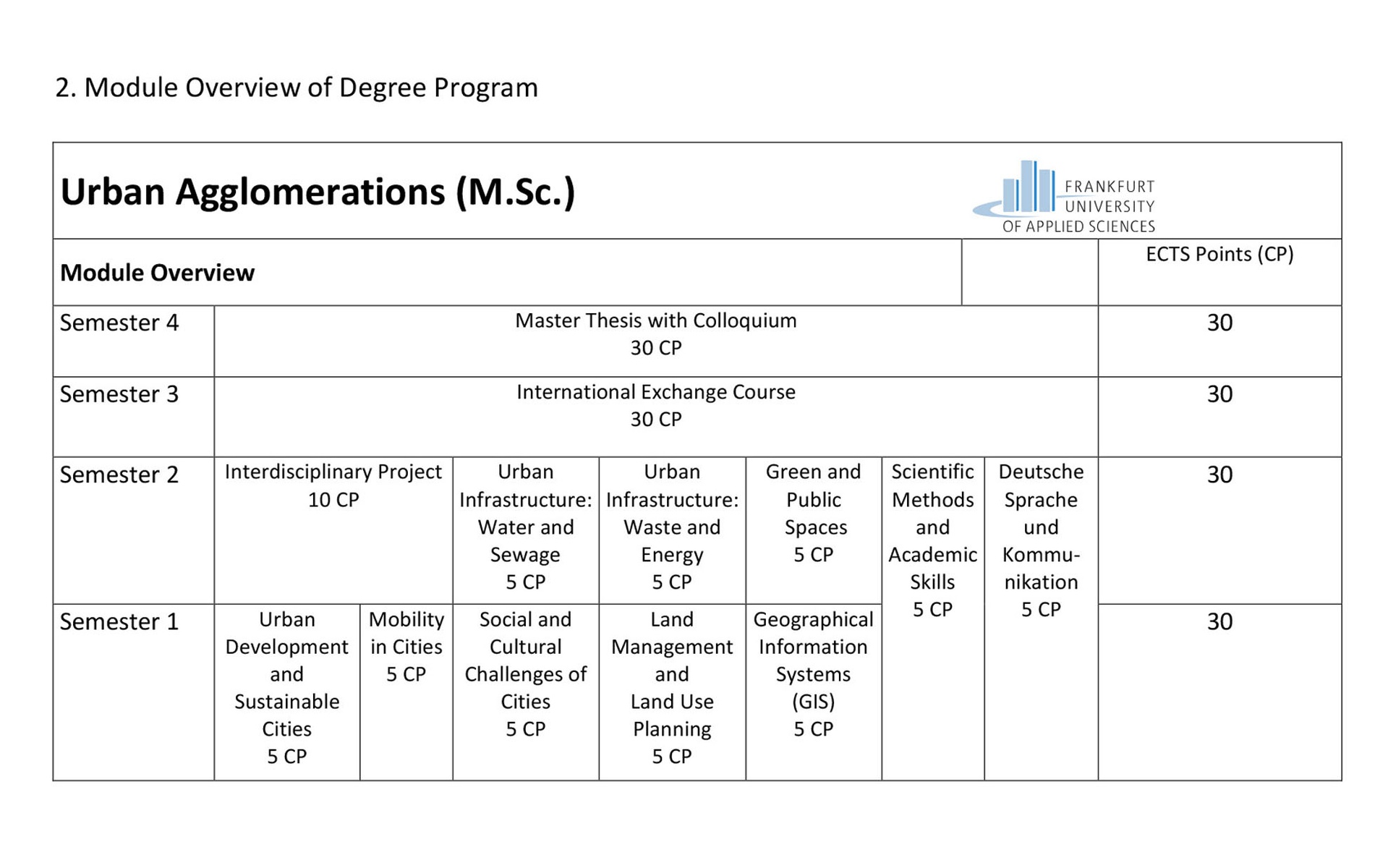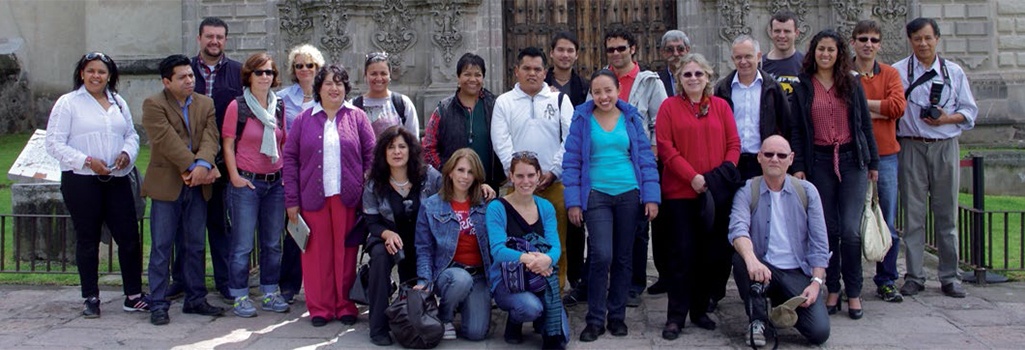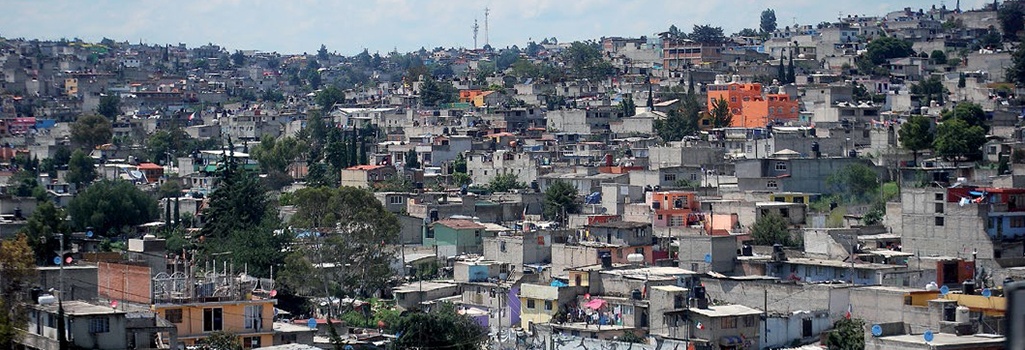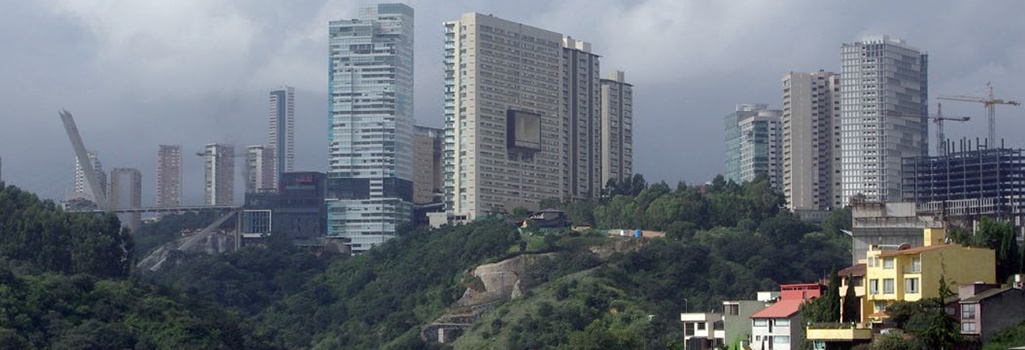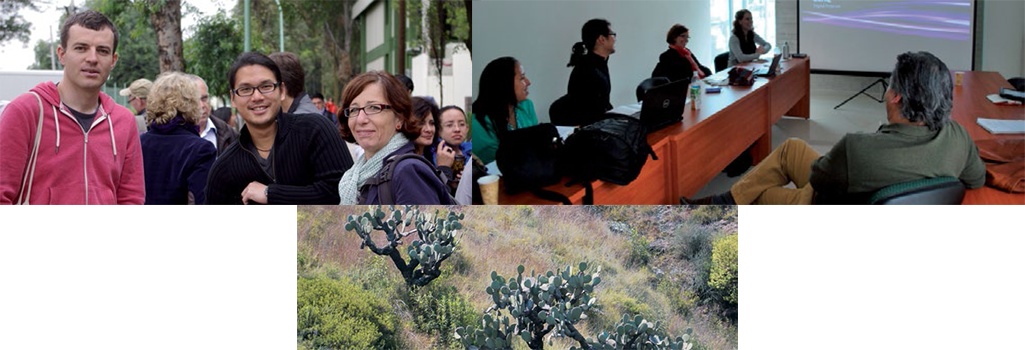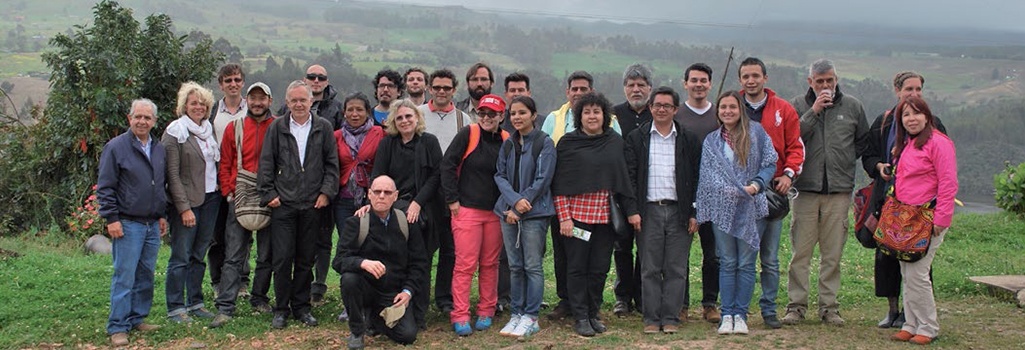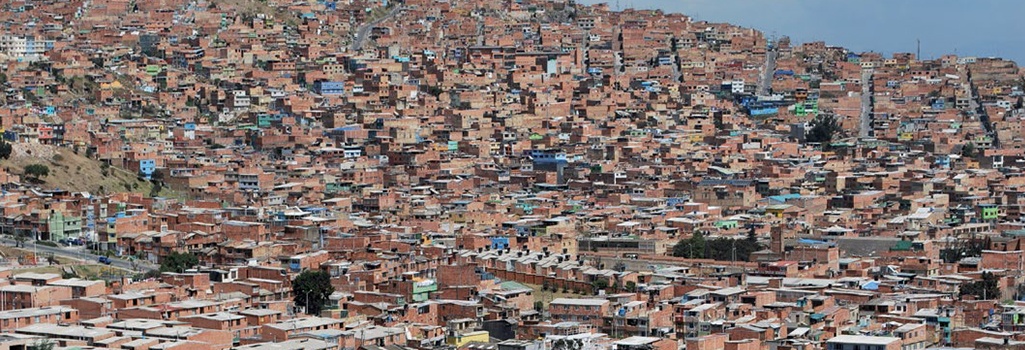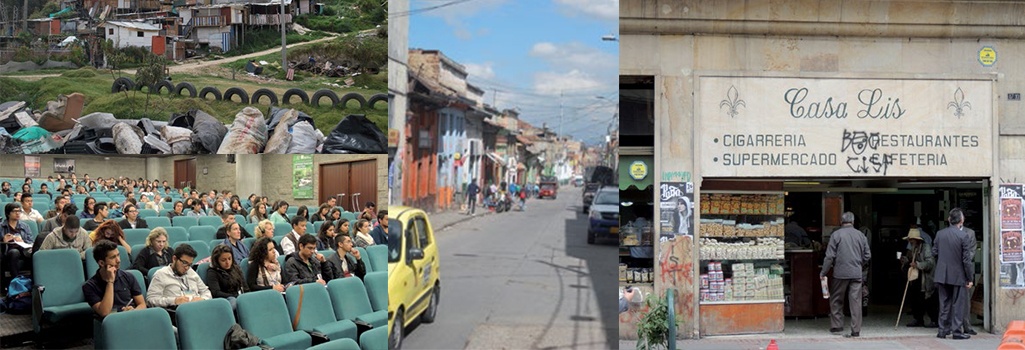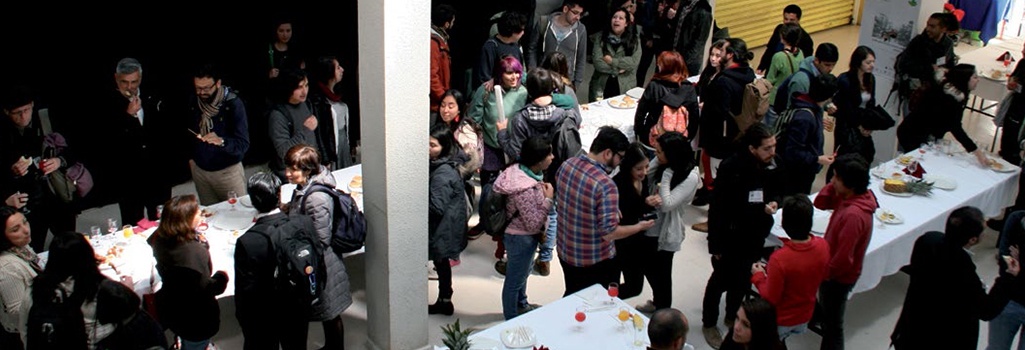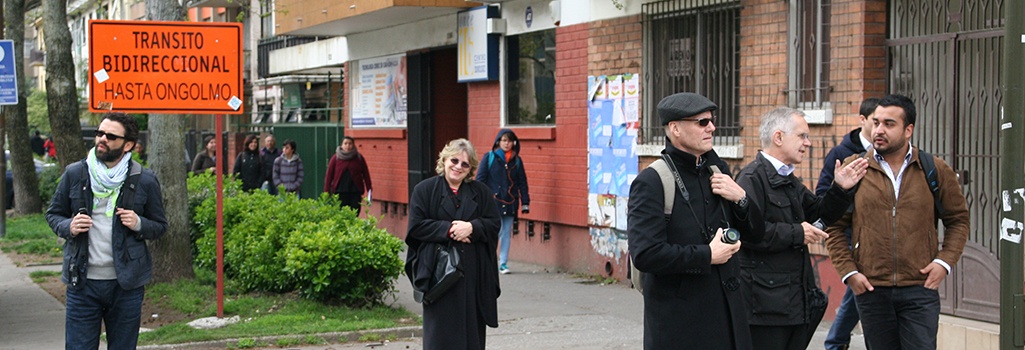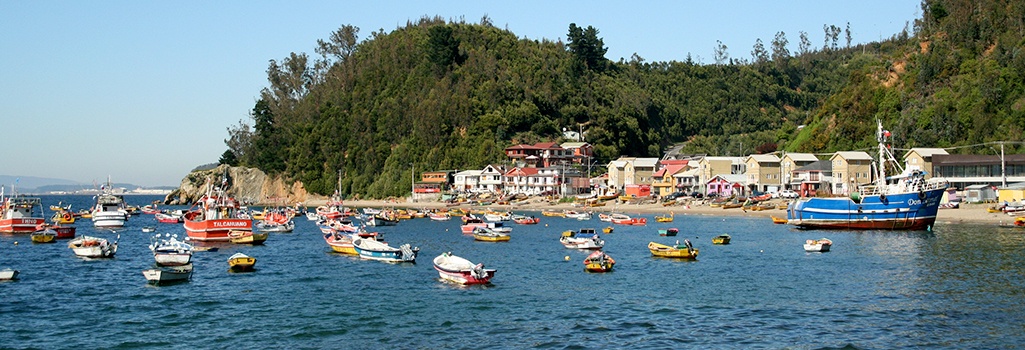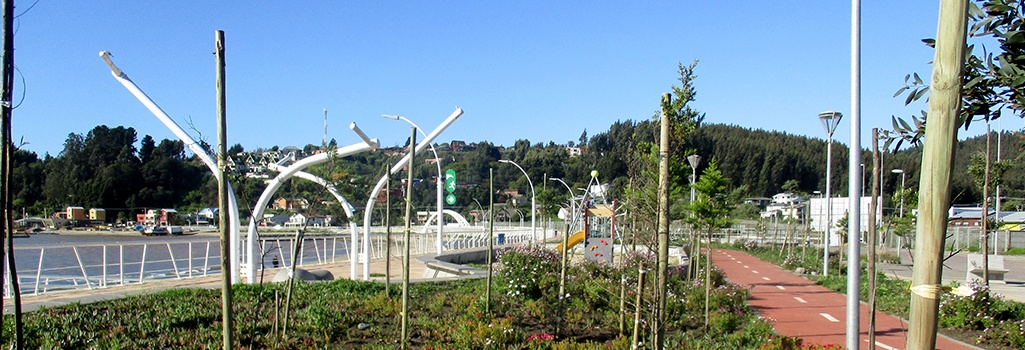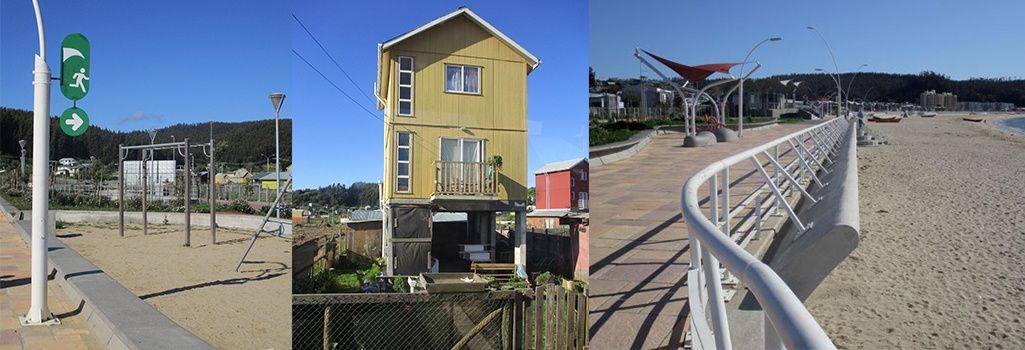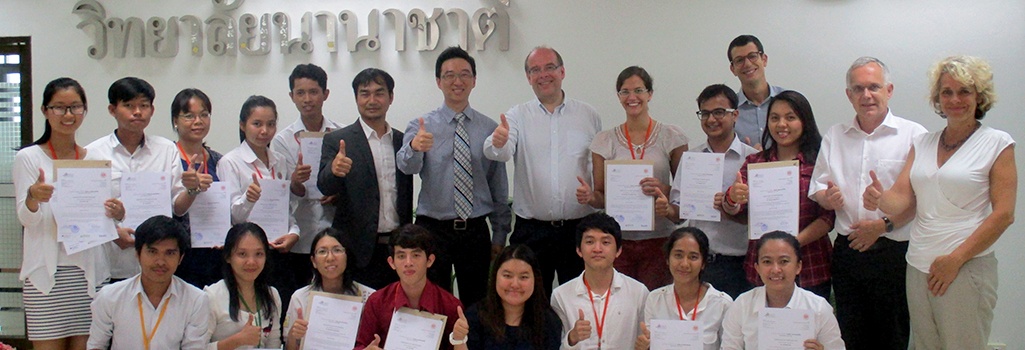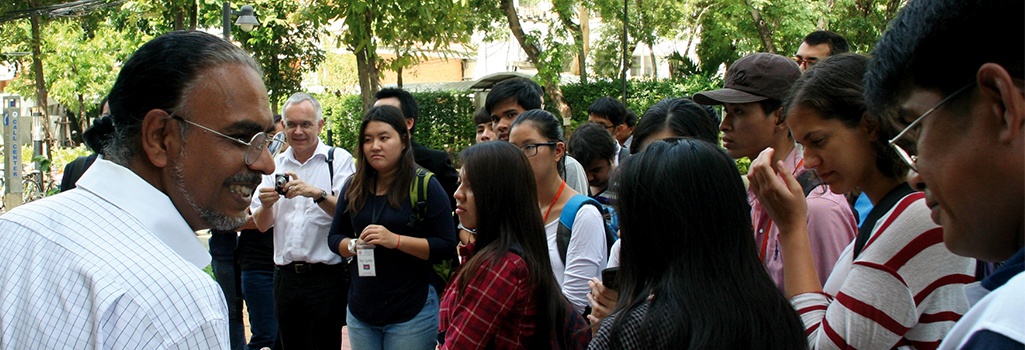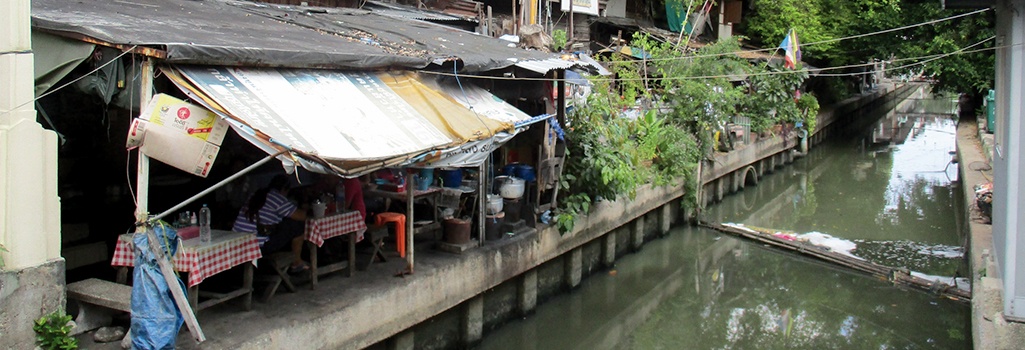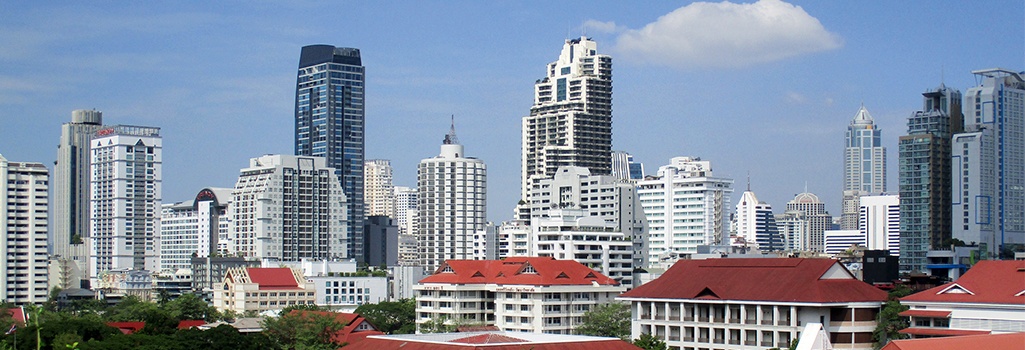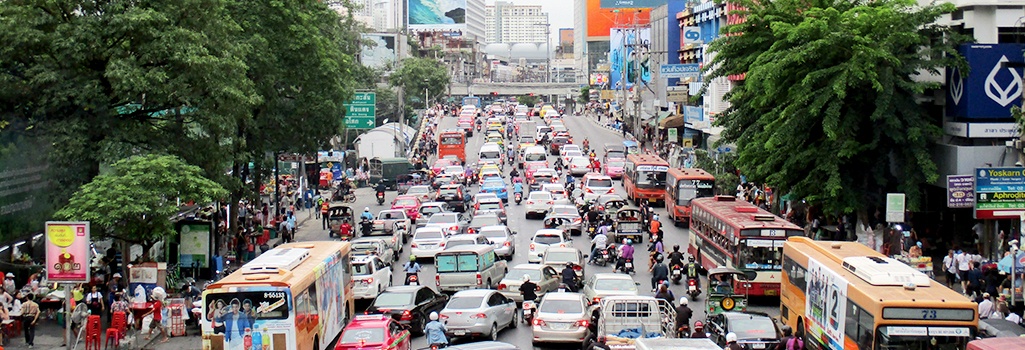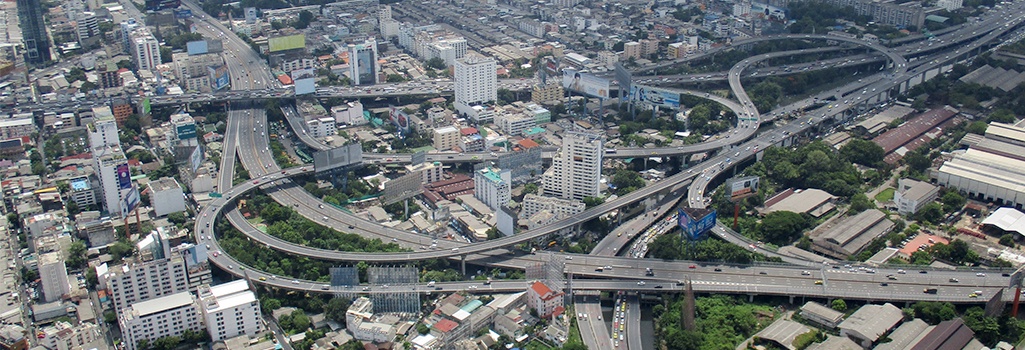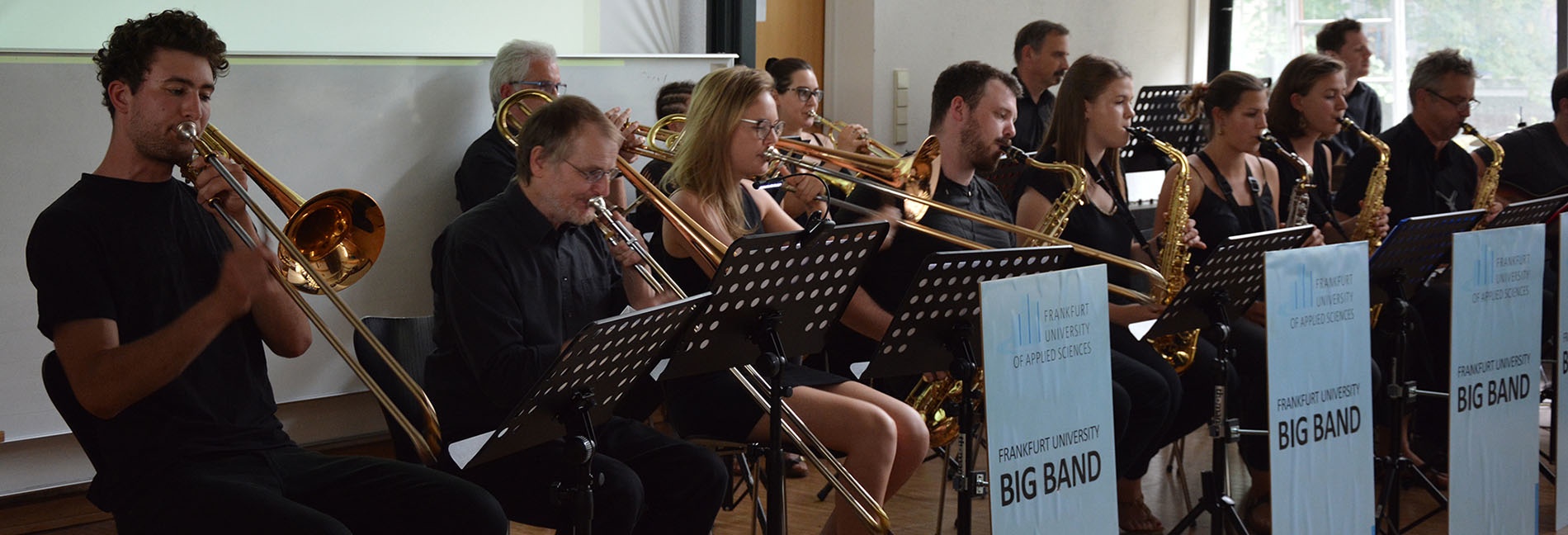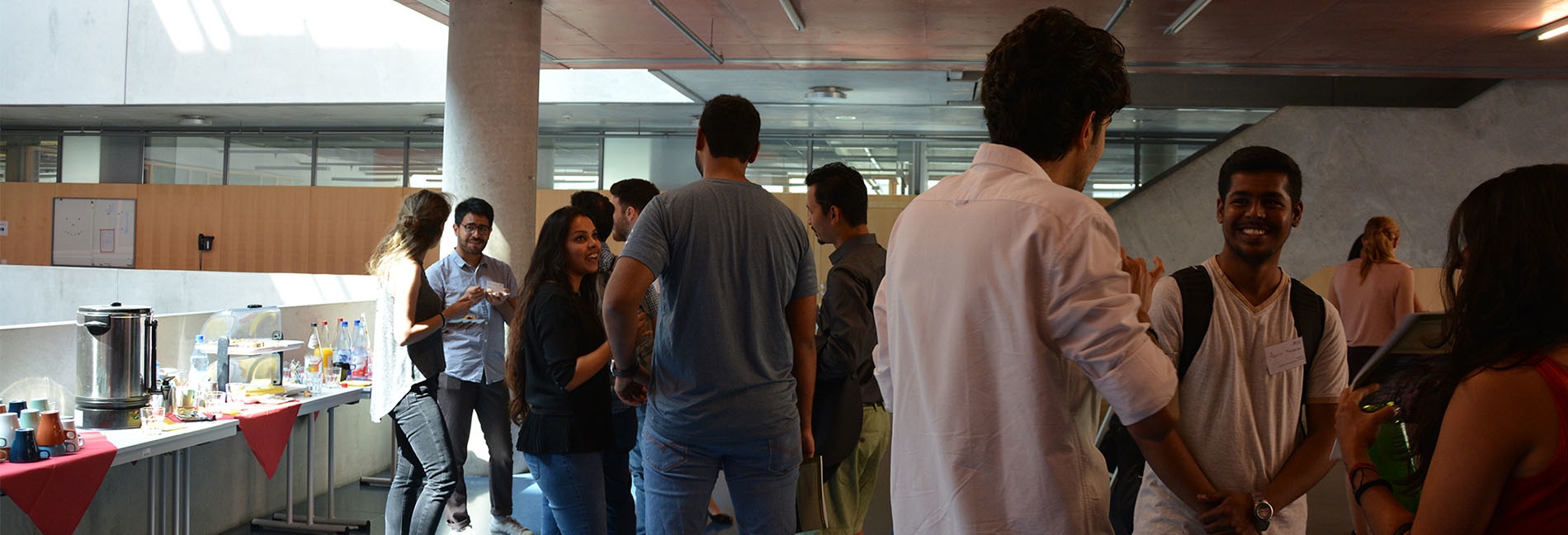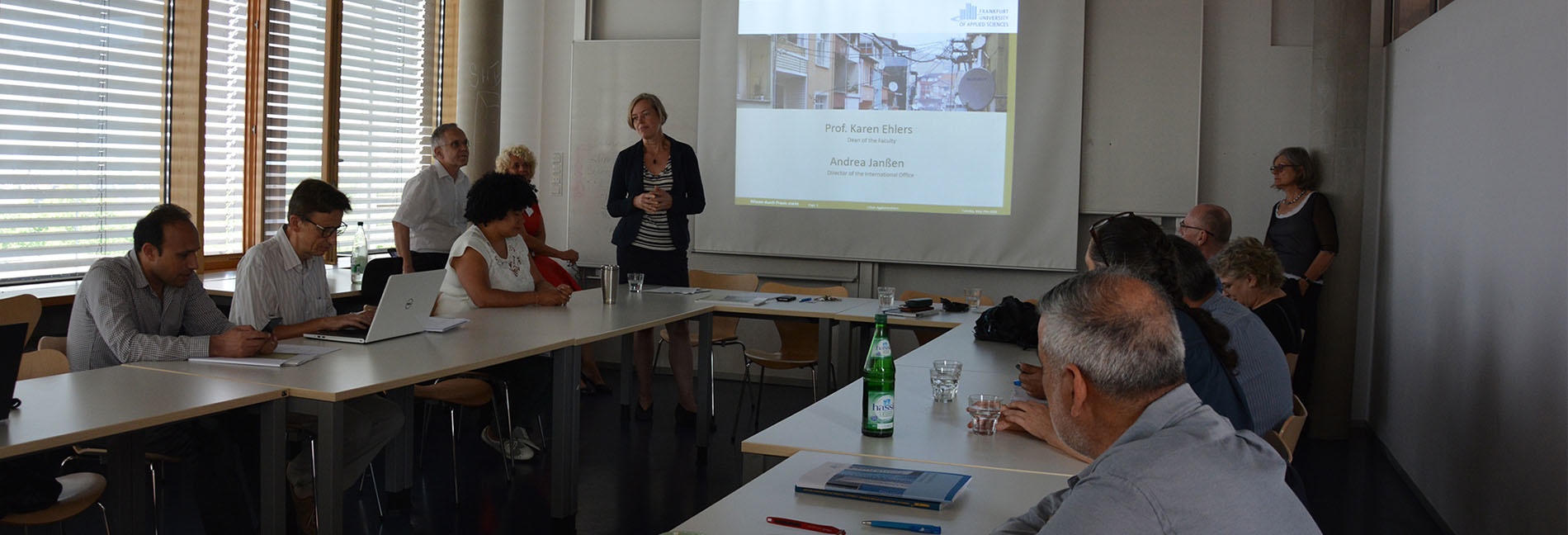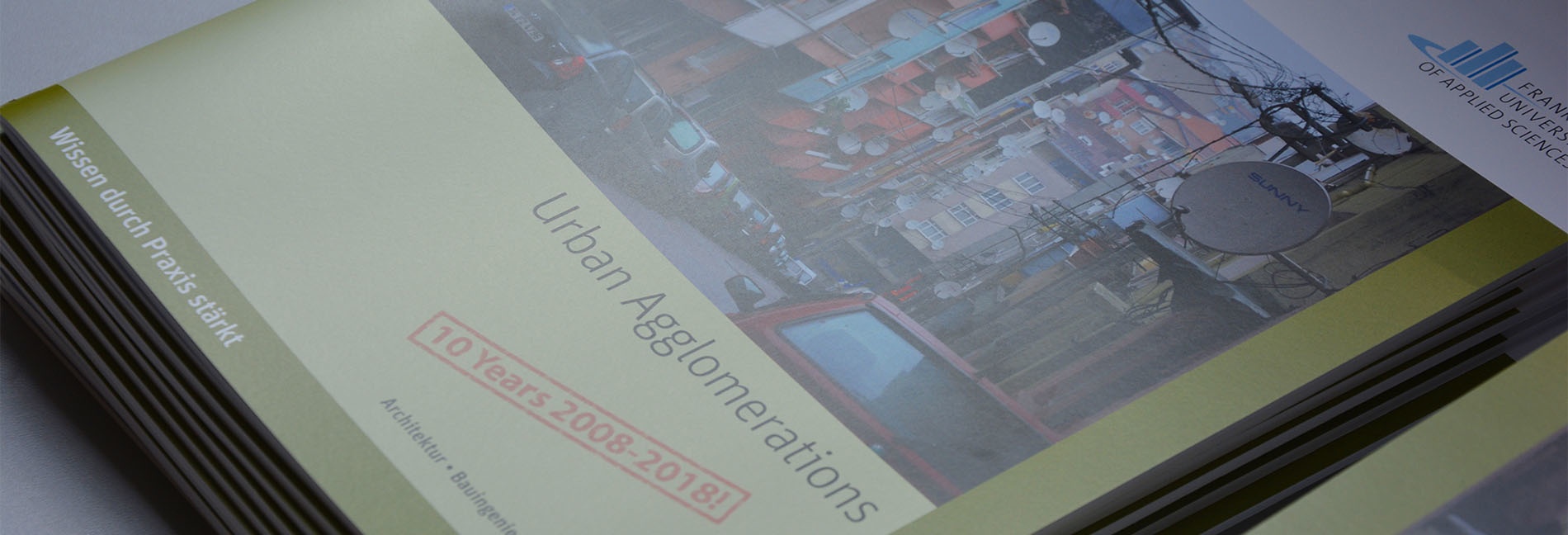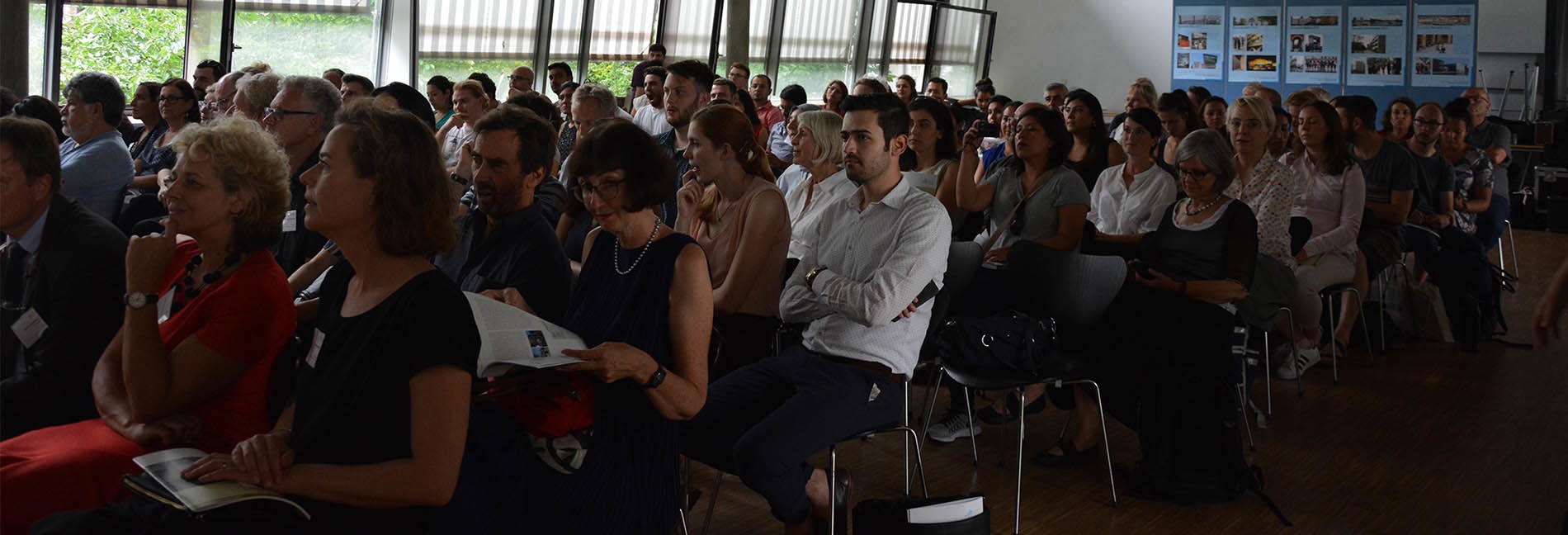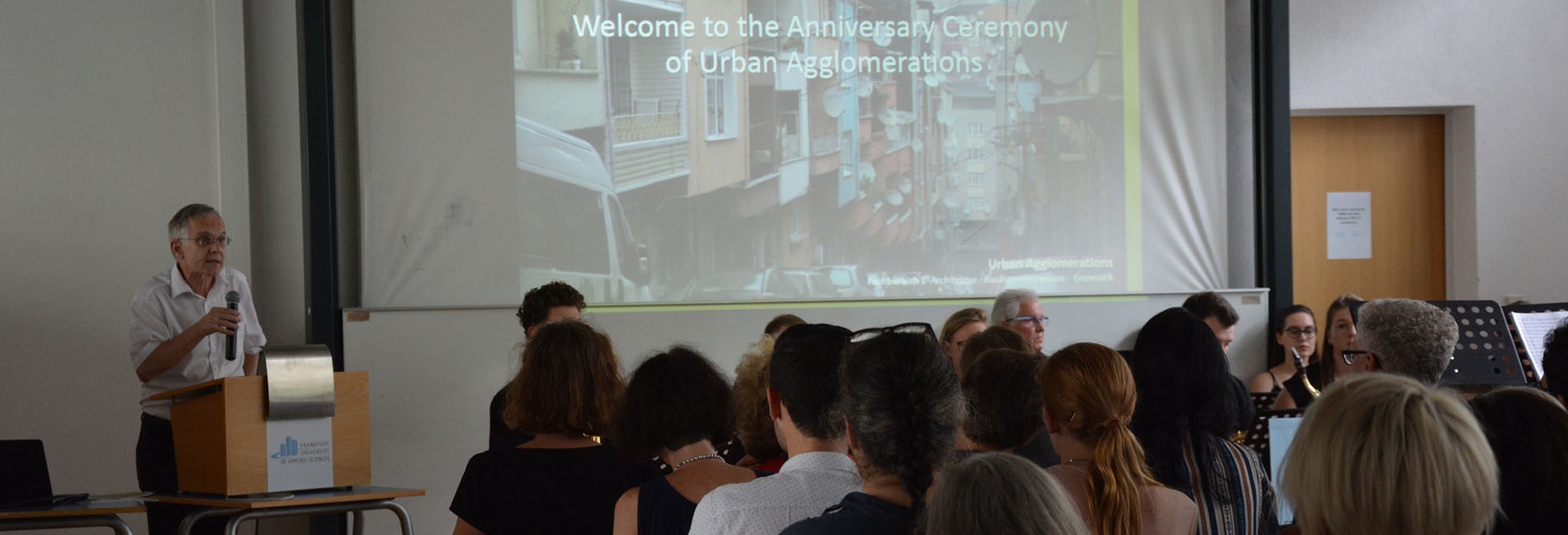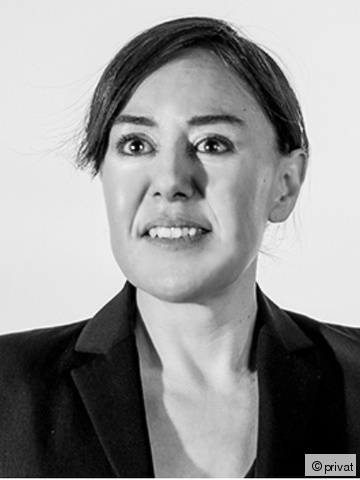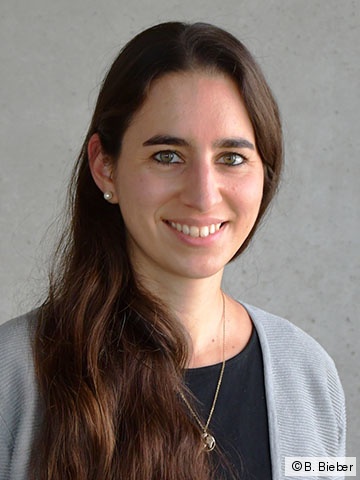Urban Agglomerations (M.Sc.)
International and interdisciplinary formation in sustainable planning, development, management and operation of city-regions and large agglomerations
The Master’s degree course has a strong international orientation. It is implemented by the Frankfurt University of Applied Sciences, Germany, in cooperation with renowned international partner universities for an international exchange course in the third semester.
M.Sc. Urban Agglomerations is a 2-year full-time course. The course is taught completely in English. The course leads to the international academic degree: Master of Science (M.Sc.).
Summary
Program | Urban Agglomerations |
Terms | 4 semesters, full-time |
ECTS credit points | 120 |
Program starts | Winter semester |
Application deadline | the next application period will start on 1st September 2026 |
Language | English |
Accreditation

By Stiftung Akkreditierungsrat until 30.09.28
Discover the program
The Master's program Urban Agglomerations, is a 2-year full-time course. The course is taught completely in English. The course leads to the international academic degree: Master of Science (M.Sc.).
The course is based on an integrated international orientation. It is organized and implemented by the Frankfurt University of Applied Sciences, Germany, in cooperation with renowned international partner universities for an exchange course during the third semester.
The exposure to teaching and planning environments of different cultures forms an important intention of the degree course, contributing to intercultural sensibility and competencies.
The Master's degree course consists of four semesters. The specific study content during the first two semesters at the Frankfurt University of Applied Sciences provides the students with a broad understanding and basic knowledge of urban agglomerations.
The modules concentrate on a structured study program and introduce and covers all relevant topics, including planning, environmental infrastructure, mobility, governance, as well as social and cultural issues.
The third semester is an international exchange semester. The Frankfurt University of Applied Sciences has cooperation agreements with partner universities worldwide, offering master’s degree programs in similar fields.
In the fourth semester, the students return to the Frankfurt University of Applied Sciences to write their master’s thesis.
Who can apply?
Graduates from all countries across the world holding a diploma, a bachelor or an equivalent first academic degree conforming to EU first degree standards in:
- Architecture
- Civil Engineering
- Urban, Regional, Landscape or Environmental Planning
- Facility Management
- Surveying,
- Real Estate
- Geo-Informatics
- Urban Geography
- or other planning-related disciplines
Additionally, graduates who are training for a career and relevant position in either the public or private sector, e.g., urban and regional administration and authorities such as planning and management departments, development corporations, free-lance consultants, real estate agencies, research institutes, etc. are welcome to apply.
Career prospects
The course is practice-oriented and qualifies graduates to continue their professional career in the public, semi-public or private sector in urban and regional administrations and local authorities with their planning or management departments, development corporations, free-lance consultants, real estate agencies, research bodies, international institutions, etc.
The primary aim of the course is to prepare students to approach and solve complex urban problems in interdisciplinary teams as well as to prepare them to be responsible decision-makers in their future tasks in both developed and developing countries.
Due to the program’s international and interdisciplinary focus which targets a diverse group of applicants from a variety of technical disciplines, it is not a classical urban planning course. It is therefore not listed under the Chamber of Architects and Town Planners of Hesse and does not entail an eligibility for membership in this Chamber.
Tuition fees
The study program is subject to tuition fees.
Application fee:
170 € for each application
Fees for enrollment for the winter semester:
12.000 € tuition fee for the whole study program (payment in 4 instalments possible)
+ administration fee for each semester in the respectively applicable amount (approx. 375€)
Fee for retaking examinations:
300 € for each retake of the examination
Fee for retaking the Master's thesis examination:
1.500 € for each retake of the examination
Fees for single modules without enrollment at the university:
500€ for each module with 5 ECTS points
1.000€ for each module with 10 ECTS points
For more information please contact the coordination office: ua-info(at)fb1.fra-uas.de
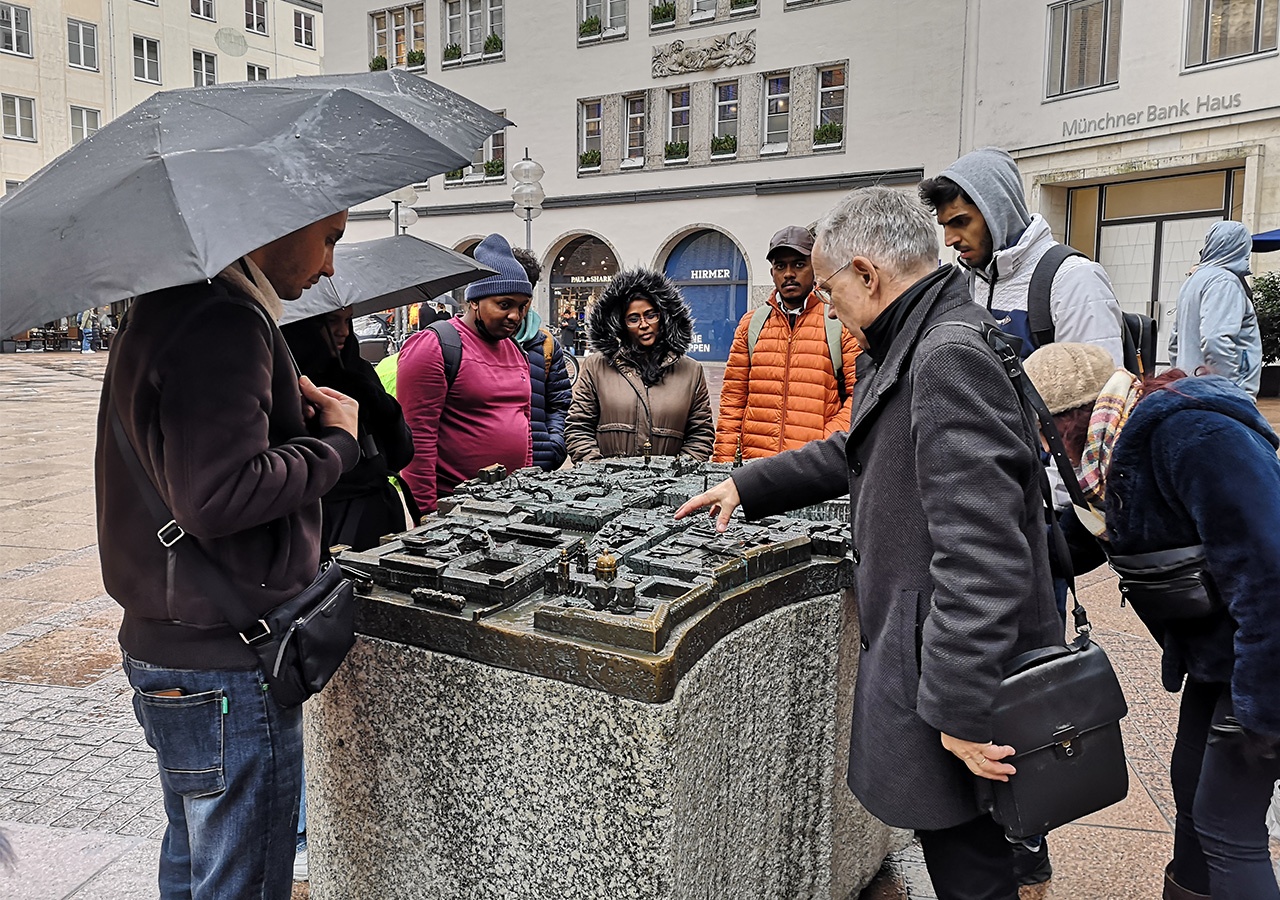
04.11.2022 - 05.11.2022
Excursion to Munich
The semester has started and we are very happy to welcome our new Urban Agglomerations Master students. In November we had our first excursion to Munich, where we visited different projects of the Munich urban development -from the royal city center to the Olympic Park to new cooperative housing projects and the trade fair city on the former airport site.
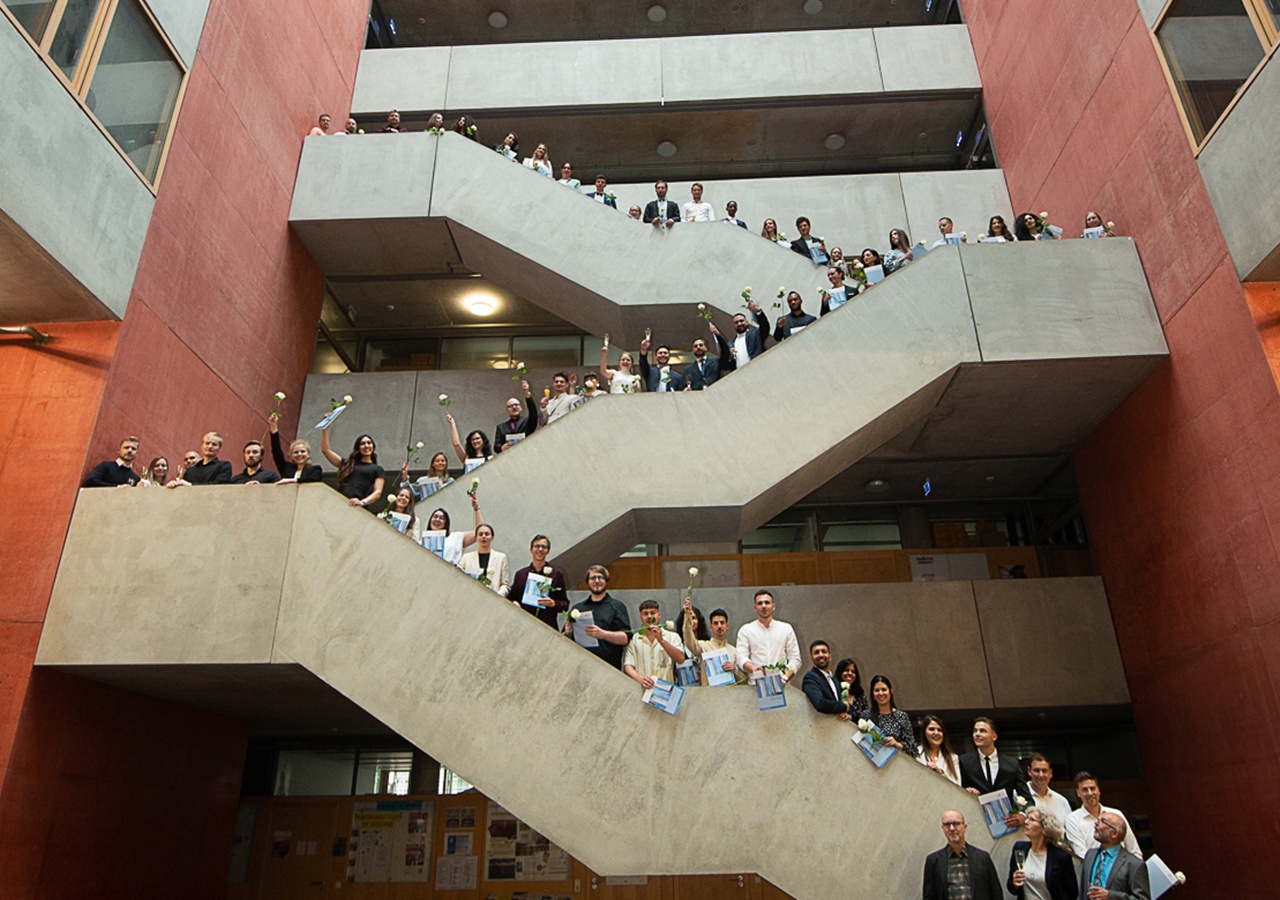
10.05.2022
Open House Exhibition 2022
Every year, the Faculty of Architecture presents an exhibition to highlight inspiring work from students at the university. Two of our newly graduated students, Vivek Krishnan and Cinthya Tello León had their excellent master theses showcased at the Open House this year. You can find more information about the exhibition here.
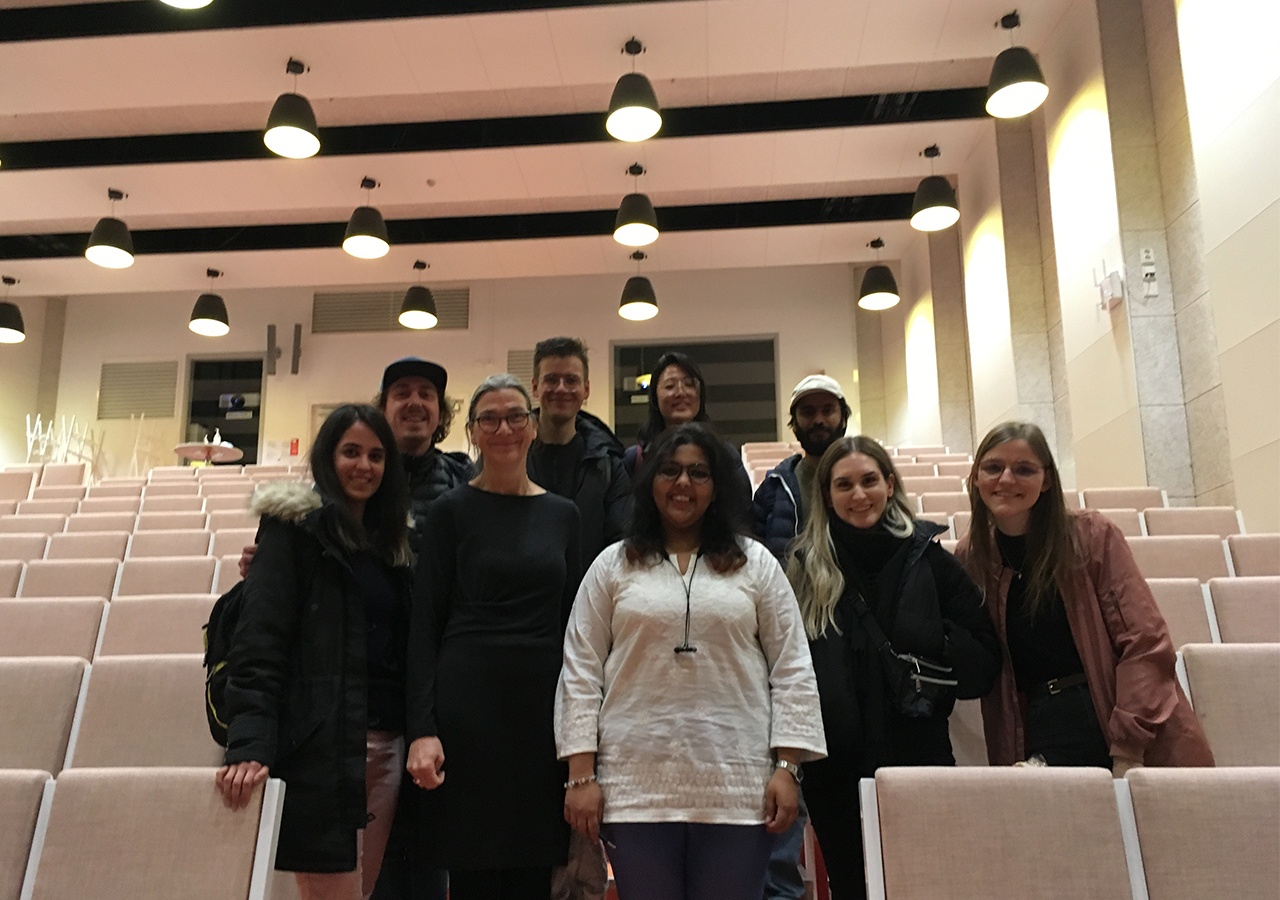
03.05.2022
Erasmus+Blended Intensive Program, Helsinki, Spring 2022. “Urban Commons and City Development”
Five of our current students participated in a multidisciplinary program hosted by U!reka Lab. The aim of the program was to investigate how prinicples of urban commons can be used in case studies from different cultural settings. The program consisted of webinars with workshops taking place in Helsinki, Finland. Our students were able to work with students from universities in Finland, Portugal, Netherlands and the Czech Republic. You can find more information on the blog: U!reka Lab: Urban Commons.
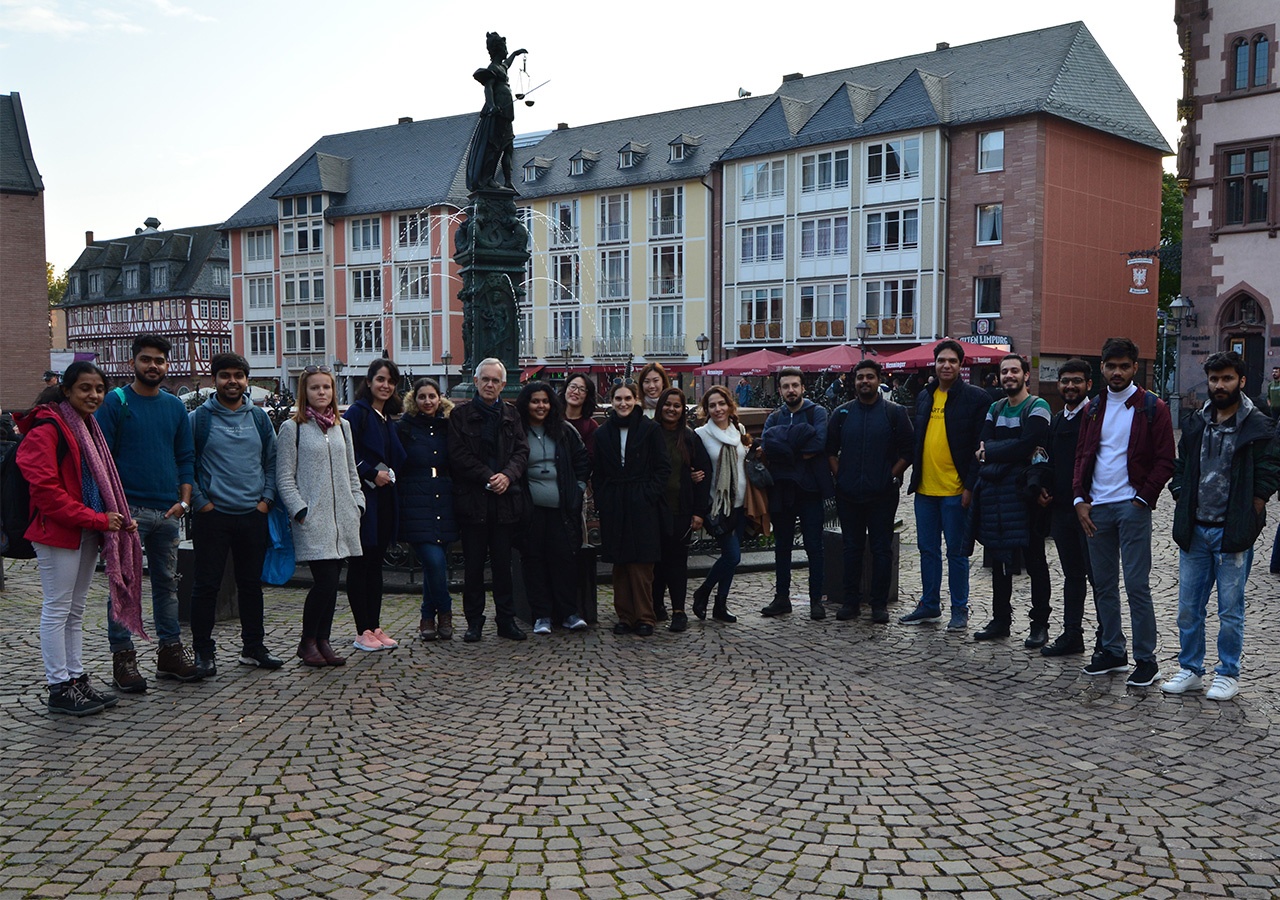
18.10.2021
Arrival of New Students Winter Semester 2021/2022
A warm welcome to our Urban Agglomeration students for the winter semester 2021/2022! The new semester began with an introductory week, which included a welcome session where students were able to introduce themselves to staff as well one another and discover the campus, library and other services. We wish them all the very best with the new semester as they embark on their new journey!

29.07.2021
End of Summer Semester 2021
The end of the summer semester in 2021 was celebrated with a small hike into the Bad Vilbel forest and a picnic thereafter for both students and staff. Students will be leaving for their exchange semester abroad very soon afterwards. We wish them a safe and successful exchange semester!

28.05.2021
Upcoming International Exchange Semester WS 2021/2022
Summer Semester 2021 is here! Students have already begun classes and have also decided on which partner universities they are set to attend in the upcoming winter semester. These include Poznan University of Technology, Malmö University, Istanbul Technical University, Politecnico di Milano, Krakow University of Technology and the Norwegian University of Science and Technology.

08.12.2020
Renewed Accreditation (2020-2028)
After a panel of external experts (Stiftung Akkreditierungsrat) reviewed the M.Sc. Urban Agglomerations program and held discussions with lecturers, faculty and university administrative staff as well as graduates and current students, the program was officially reaccredited for another 8 years. This would not have been possible without the excellent and continued contributions and commitment from all those involved in our program.

20.07.2020
Passenger Transport Energy Use in Ten Swedish Cities: Understanding the Differences through a Comparative Review
A scientific article about energy conservation in the passenger transport sector of cities was recently published by Prof. Dr. Jeffrey Kenworthy. The article can be found here: Passenger Transport Energy Use in Ten Swedish Cities: Understanding the Differences through a Comparative Review

18.06.2020
Urban Agglomerations Student and Rugby Player for ScFrankfurt 1880
One of our students, Ian Minjire from Kenya, shows us how well one can combine studies and sports. An article was published showcasing the engineer and his passion for rugby.
His achievements were also broadcasted on Kenyan national television: youtu.be/6V_f2kahzCw
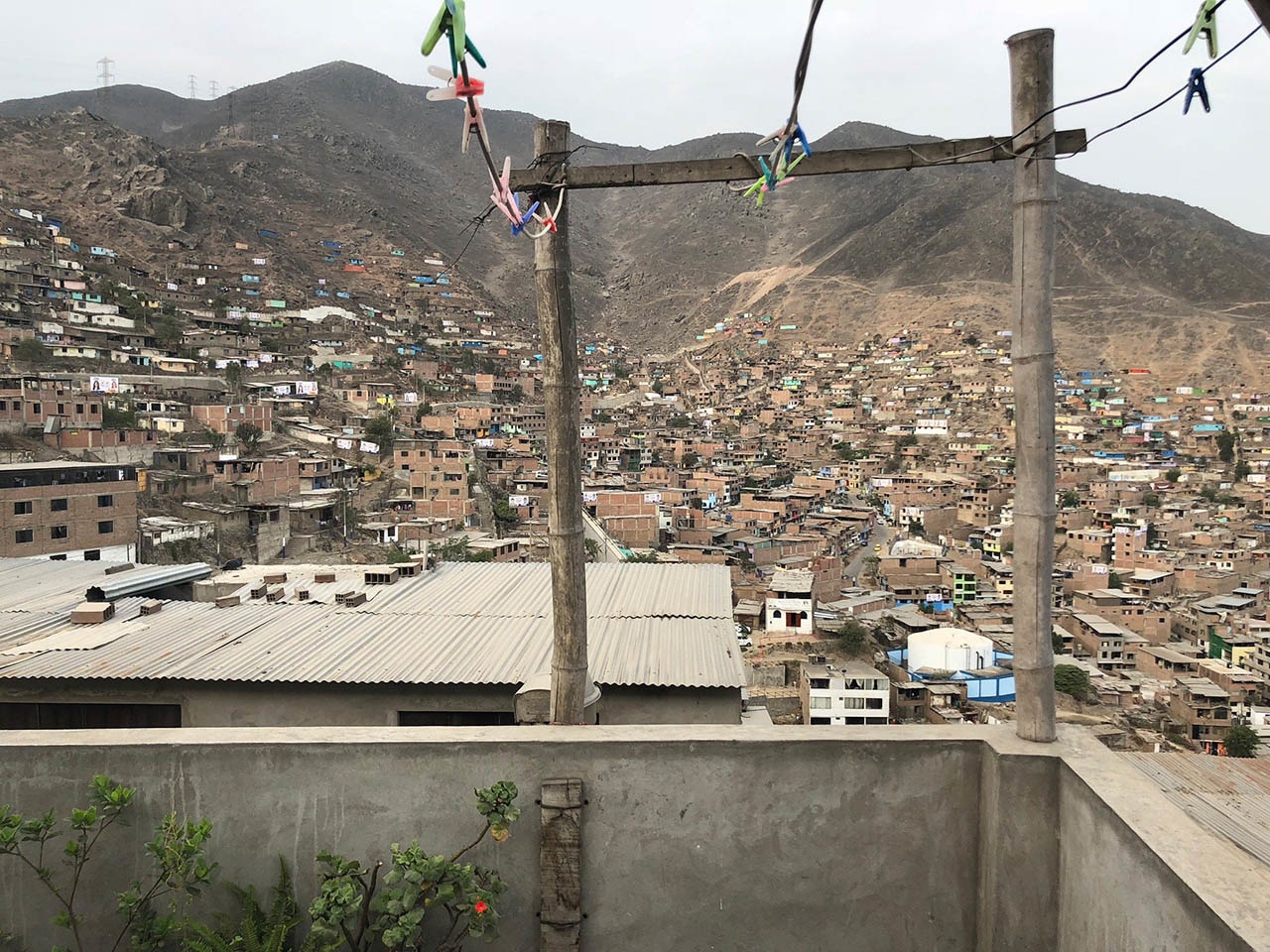
10.12.2019
Place-Making through the Creation of Common Spaces in Lima’s Self-Built Settlements: El Ermitaño and Pampa de Cueva as Case Studies for a Regional Urbanization Strategy
A scientific article about common spaces in self-built settlements in Lima was published by a group of UA students together with Prof. Dr. Jeffrey Kenworthy and Dr. Kathrin Golda-Pongratz in December 2019. The article can be found here: Place-Making through the Creation of Common Spaces in Lima’s Self-Built Settlements
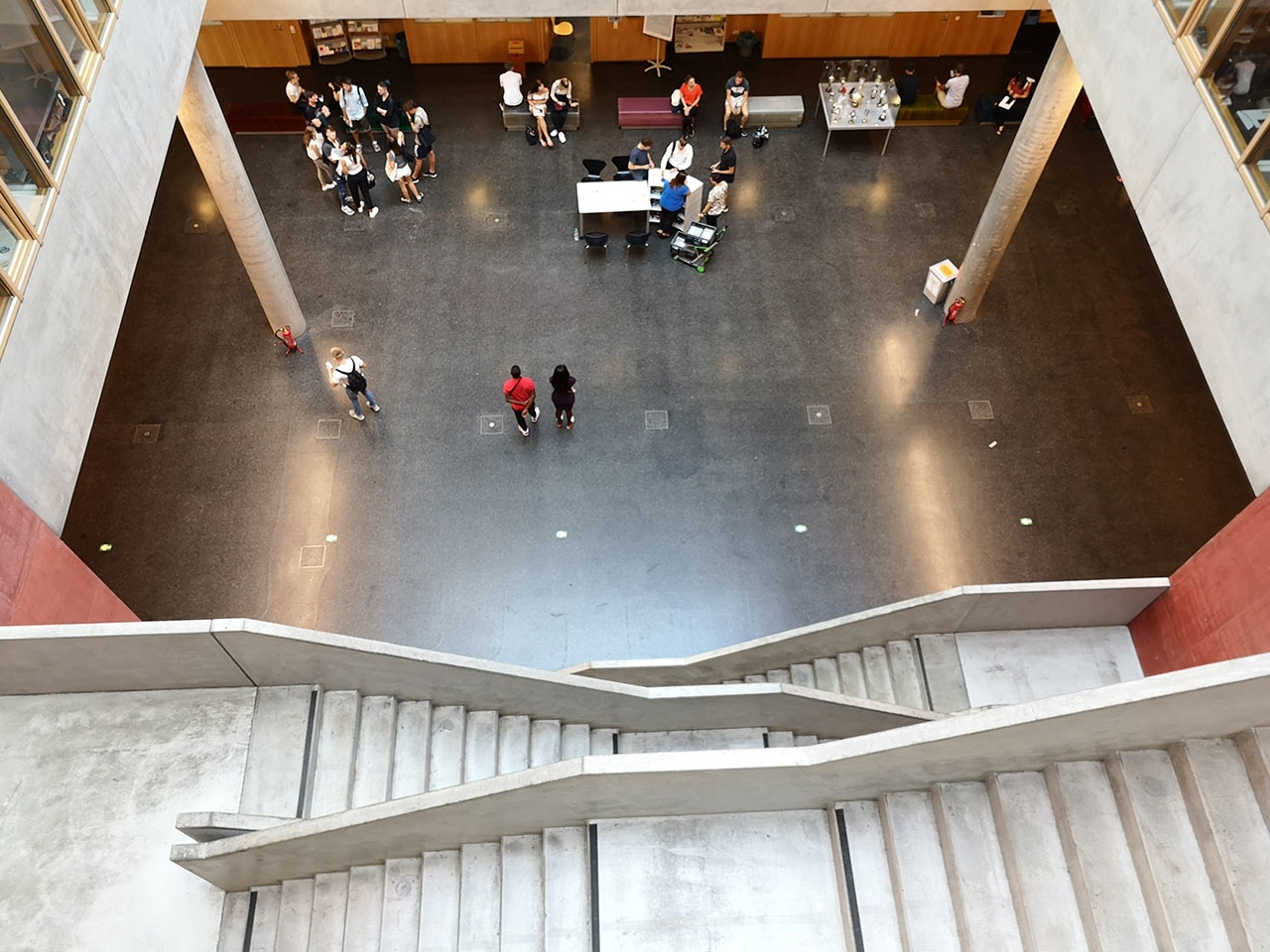
14.10.2019
Arrival of the New Students
On Monday, 14th October 2019 at 10:00 a.m., the students of the 12th year of Urban Agglomerations started their studies. They were welcomed by the program director, the coordinators and by the President of the Frankfurt University of Applied Sciences. The opening ceremony was followed by a three-day introductory event.

11.07.2019
Anatomy of an Informal Transit City: Mobility Analysis of the Metropolitan Area of Lima
A group of UA students worked together with Prof. Dr. Jeffrey Kenworthy and Dr. Kathrin Golda-Pongratz on a scientific article about the metropolitan area in Lima. The article dealt with the difficult issue of mobility in rapidly motorizing cities using Lima as a case example. Lima was found to be a city that relies heavily on transit but mostly on poorer quality and informal modes of transport. If Lima wants to progress in the area of sustainable transport, it needs to develop a strong backbone of formal modes of transport preferably rail, stop building freeways and devote attention to radically improving the situation for non-motorized modes. The article was published in July 2019 and can be found here: Anatomy of an Informal Transit City: Mobility Analysis of the Metropolitan Area of Lima
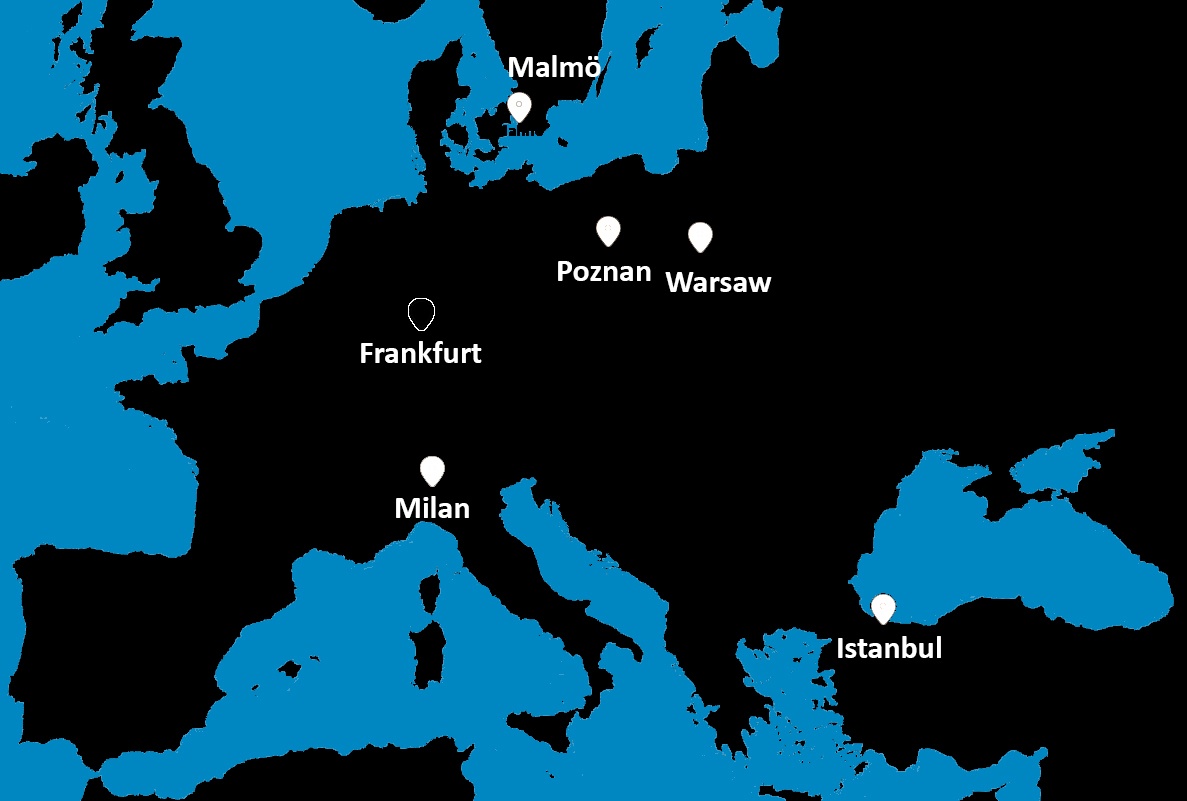
26.06.2019
Reports about the Exchange Semester
After returning from their exchange semester, our students presented the experiences they were able to gain at our partner universities during the last winter term. Students from our M.Sc. Urban Agglomerations program studied at our partner universities in Sweden, Poland, Italy and Turkey.
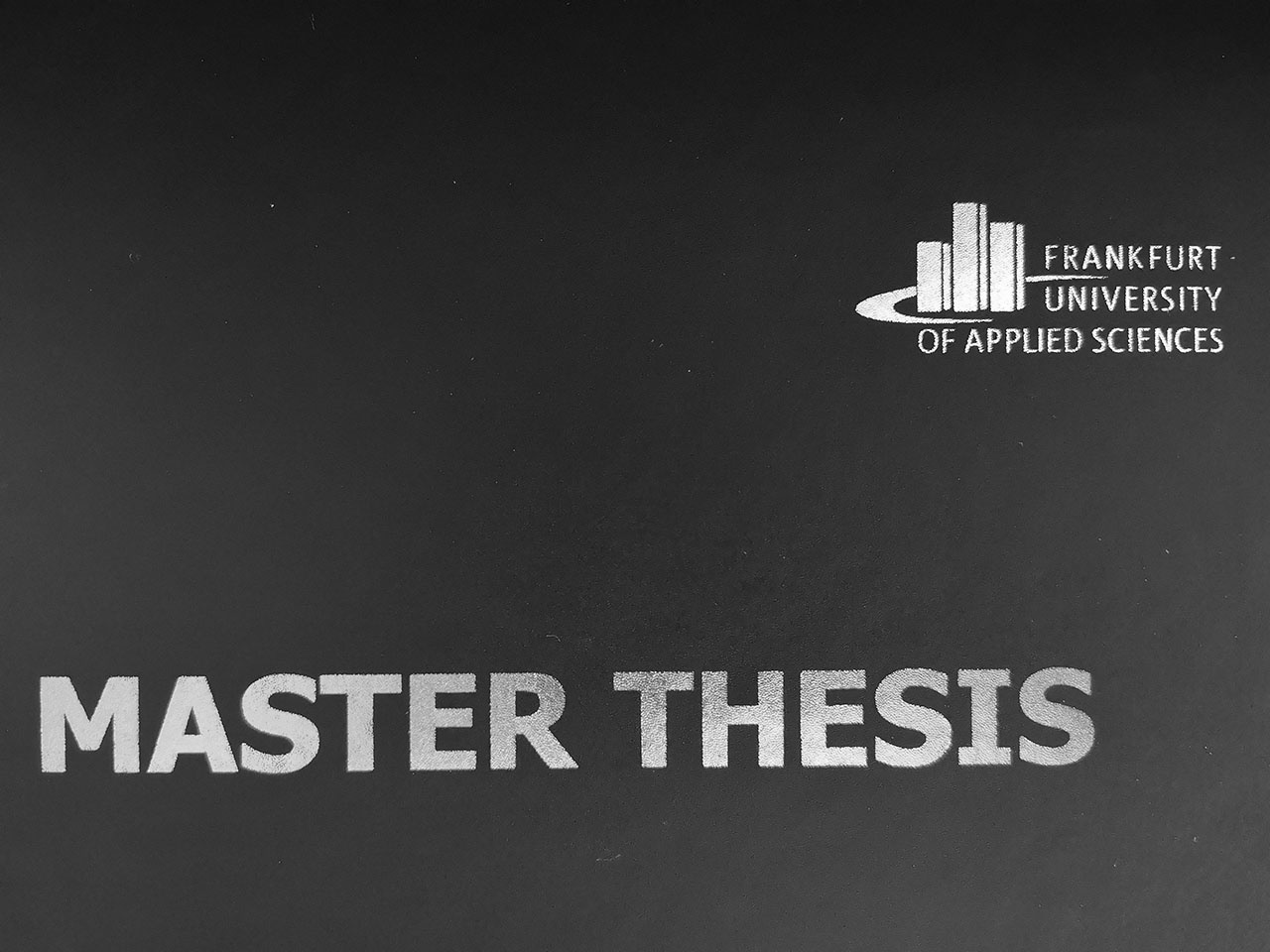
16.09.2019
Master's Thesis Presentations
On 16th and 17th September 2019, 13 master’s theses from our students of the current summer semester were presented to the public.
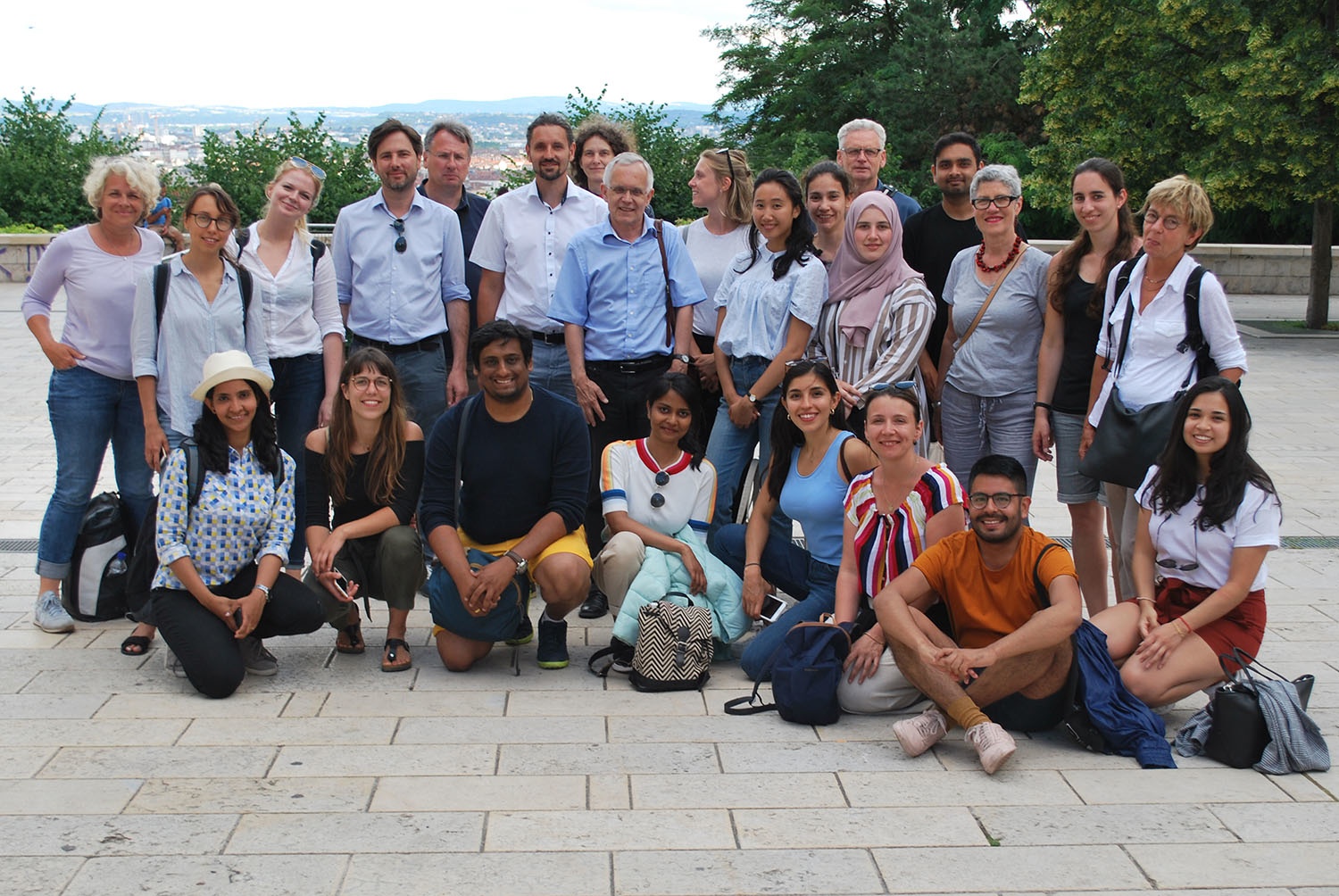
20.06.2019 - 23.06.2019
Excursion to Lyon
In June 2019, students and lecturers from the M.Sc. Urban Agglomerations program, Barrier-Free-Systems and UMSB spent an extended weekend in Lyon in France and visited many urban developments and some architectural projects. Each student prepared a short report on project for which they then presented on the tour. Examples of these projects: included the urban development projects Part-Dieu, La Duchère, La Confluence, the development of the riverbanks and public spaces in the historic city centre, the Croix-Rousse district and housing estates from the 1920s such as the Gratte-Ciel district and Les États-Unis. Furthermore, we visited the Musée des Confluences designed CoopHimmelb(l)au and the Museum and Roman Theaters Lugdunum designed by Bernard Zehrfuss.
Modules
The Master’s course: Urban Agglomerations is completely taught in English. It comprises of twelve modules that are 5 to 30 credits each and the final Master’s Thesis (30 credits). The complete course therefore is 120 ECTS-credits.
The students spend three semesters in Frankfurt (semester 1, 2 and 4) and one exchange semester (semester 3) at an international partner university.
Exams
There are 13 study modules, and each terminates with an exam.
Examinations are either oral, written or submitted as project work and are defined in the description of the respective modules.
Available exams
Number | Titel | ECTS Credits | Examination of the module | Language |
|---|---|---|---|---|
UA M1 | Urban Development and Sustainable Cities | 5 | Written exam (120 minutes, 50%) and written assignment (8 weeks, 50%) | English |
UA M2 | Mobility in Cities | 5 | Project work (12 weeks) | English |
UA M3 | Social and Cultural Challenges of Cities | 5 | Oral presentation (10-20 minutes, 25%), written assignment (8 weeks, 25%) and project work (8 weeks, 50%) | English |
UA M4 | Land Management and Land Use Planning | 5 | Project work (12 weeks) | English |
UA M5 | Geographical Information Systems (GIS) | 5 | Written exam (150 minutes) | English |
UA M6 | Scientific Methods and Academic Skills | 5 | Written assignment (6 weeks, 25%), written assignment 2 (6 weeks, 25%), written assignment 3 (8 weeks, 50%) | English |
UA M7.1 | Deutsche Sprache und Kommunikation (A1-Niveau) | 5 | Klausur 1 (60 Minuten, 35%), Klausur 2 (60 Minuten, 35%), Präsentation 5-10 Minuten, 30%) | Deutsch |
UA M7.2 | Deutsche Sprache und Kommunikation (A2-B1-Niveau) | 5 | Klausur 1 (60 Minuten, 35%), Klausur 2 (60 Minuten, 35%), Präsentation 5-10 Minuten, 30%) | Deutsch |
UA M8 | Urban Infrastructure: Water and Sewage | 5 | Written assignment (8 weeks) | English |
UA M9 | Urban Infrastructure: Waste and Energy | 5 | Written assignment (8 weeks) | English |
UA M10 | Green and Public Spaces | 5 | Project work (12 weeks) | English |
UA M11 | Interdisciplinary Project | 10 | Project work (12 weeks) and presentation (10-20 minutes) | English |
UA M12 | International Exchange Course | 30 | Depending on the requirements at the partner university | English or other |
UA M13 | Master Thesis with Colloquium | 30 | Master Thesis (18 weeks) and colloquium (40-60 minutes, 25%) | English |
The Master’s degree course: Urban Agglomerations (M.Sc.) offers an international and interdisciplinary study in sustainable planning, development, management and operation of city-regions and large agglomerations. This course is internationally oriented and therefore involves the exchange of perspectives from all over the world. It is implemented by the Frankfurt University of Applied Sciences, Germany, in cooperation with renowned international partner universities for an international exchange course in the third semester.
The program is a 2-year full-time course taught completely in English. The course leads to the internationally recognized Master of Science (M.Sc.) academic degree.
First start of the degree course: October 2008
Accreditation until: September 2028
Next application deadline:
May 1st, for applicants with a first degree from non EU countries
September 15th, for applicants with German and other EU degrees.
Thesis topics
Year of Graduation | Thesis Topic | Author |
|---|---|---|
2023 | Rethinking Dharavi. A Design Proposal for a Sustainable Future of an Informal Settlement in Mumbai | Vijaylaxmi Umesh Shirol |
2023 | The Present and Potential Role of Cargo E-Bikes for Last-Mile Deliveries in European Cities | Swikar Patil |
2023 | Building A Better Future – A Development Proposal for Revitalization of Jayanagar Neighbourhood in Bengaluru | Sharanya Hoskote Bhavani Shankar |
2023 | Retail Redevelopment in City Centre – “The Zeil” Frankfurt Am Main. Preventing the decline of retail areas in inner cities through sustainable urban planning | Serve Vosough |
2023 | Rediscover the Forgotten Puzzle Piece: Rejuvenating the Connection between Großauheim and Hanau Innenstadt by Urban Greenways | Po Yiu (Canathy) Wong |
2023 | Impacts of the Beautification Projects in Colombo, Sri Lanka. The Involuntary Relocation of Urban Underserved Communities | Nishanthan Nadarajah |
2023 | Artificial Photosynthesis. A Case for Decentralized Energy Generation in Urban Agglomerations | Muhammad Tahseen Abbasi |
2023 | Greening Up Pune. Programs and Mesures to increase the Benefits of Greening | Karan Kirad |
2023 | Design Guidelines for Multicultural Urban Planning and Community Building | JuYoung Kim |
2023 | Revitalization of Urban Villages in Delhi, India. A case study: Public participation in the development of Haiderpur village | Atul Yadav |
2023 | Urban Agriculture and its Contribution towards Sustainable Cities and Communities | Ashish Chougule |
2022 | Approaches for Mitigation of Urban Heat Islands. A Case Study in New Delhi | Rex Kumar |
2022 | Approach for a Circular Economy in Industrial Waste Management to Promote Sustainable Urban Development. A Case Study of the Robert Bosch GmbH Chassis Systems Control | Ha My Vo |
2022 | Ciudad Juárez: Towards a Water Sensitive Border City | Brianda America Nieblas Ortiz |
2022 | Exploring the Use of Existing and Emergent Digital Technologies and Strategies in Enabling a Greater Sense of Place in an Urban Context: A Case Study of Fort Kochi, Kerala | Vivek Krishnan |
2021 | Impact of Covid-19 on Cycling in Cities: An International Review | Supriya Joshi |
2021 | Study of Sustainable Urban Paradigm for Katchi Abadis of Islamabad | Asfandyar Shah |
2021 | Towards a Water Sensitive Urban Design (WSUD) Approach for Lima, Peru | Cinthya Tello León |
2021 | Discovering Johannesburg’s Potential as a Water Sensitive City | Sabena Thomas |
2021 | City of Wellbeing: Planning for Healthy and Inclusive Urban Environments | Silvia Salazar Castro |
2021 | Increasing Cycling as a Non-Motorised Mode in Dhaka, Bangladesh | Nazia Nawrin Hossain |
2021 | Towards a Pedestrianization Strategy for Amman, Jordan | Dima Muti |
2021 | Sustainable Upgrading of Informal Settlements in Mumbai | Vikrant Jantre |
2021 | Urban Decay in the Historic Core of Kolkata, India: Analysis, Opportunities and Strategies for Urban Regeneration | Somraj Sarkar |
2021 | Future Prospects for Sustainable Public Transportation in Nairobi City | Ian Stewart Minjire Kibira |
2020 | Accessibilty of Recreational Areas-An Infrastructural Analysis in the City of Hanau | Ida Marie Olssøn |
2020 | A Critical Approach to the Urban Planning andTransport Implications of Ultra-High-Speed Rail, Hyperloop: A Case Study of the Mumbai to Pune Corridor, India | Smriti Premsagar |
2020 | Impacts of River Renaturation in Germany: A study of the Socio-Ecological Impacts of the Emscher and Isar River Renaturation Projects in Germany | Pratik Dani |
2020 | Urban Design Strategies to Mitigate the Urban Heat Island:A Case Study of Mumbai City | Sania Khan |
2020 | The Role of Abandoned Railways as Strategic Places for Sustainable Development | Prajakta Deshpande |
2020 | The Importance of Mobility as a Service in the Context of Smart and Sustainable Cities | Dinorah Andrea Vargas Reyes |
2019 | Street Fight of the 21st Century: Learning from Barcelona’s Superblock Model on Sustainability in Transportation | Samar Al Maaroufi |
2019 | Housing of immigrants in Columbia – A challenge for future living conditions | Hirenkumar Bhagvandas Patel |
2019 | Strategies and Recommendations for Redeveloping the Settlements of Syrian Refugees | Bachar Ntefeh |
2019 | Analysis of the Colombian Metropolitan Areas | Andrés Felipe Mendoza Roa |
2019 | A Study of the Polycentric Urban Growth Strategy of Istanbul | Khashayar Dashti |
2019 | Sustainable Management of the Channelized Water Streams in Bogotá | Natalia Pulido Castro |
2019 | An Analysis of the Public Transport Performance in Brazilian Cities | Sara Costa Sena Pereira |
2019 | Impact of High-Rise Development Plans on Property Values Frankfurt and Mumbai | Ekta |
2019 | Lessons Learnt from the Changing Role of Public Spaces during the Arab Spring | Ahmed Hamdi Ali Ihsan Hamdi |
2019 | Healing Cooum: A study of the Cooum river and it‘s restoration measures | Varoon Venkat Shenoy |
2019 | A City by People? Public Participation in the Urban Planning of Leon, Mexico | Natalia del Carmen Calixto Solano |
2019 | Proposal Pedestrianization of Kota Lama Semarang, Indonesia | Muhammad Fahd Diyar Husni |
2019 | Mototaxis as Paratransit Modes in the Periphery of Lima | Guillermo Franco Jauregui Fung |
2019 | Road Pricing as a Congestion Control Mechanism | Ashish Talasadar |
2019 | Contemporary Shopping Spaces in the City of Bengaluru, India | Sruthi Venkataramanan |
2019 | Waste as Resource-Energy Recovery Potentials of Sewage Sludge in Bengaluru City, India | Mayura Varma Rajkumar Vatsala |
2018 | A Comparative Assessment on Bus Rapid Transit Systems in Latin America | David Eduardo Castrillon Arango |
2018 | How to Transfer GIS Based Urban Models to Graphic-Optimized 3D-Tiles: State of the Art and Future Work | Hung Che Yi |
2018 | Healing Monterrey trough Natural Infrastructure | Ana Lucía Araujo Castro |
2018 | Revitalization of River Vishwamitri in the City of Vadodara, India | Bhavsar Rahul |
2018 | Transitional Urbanism Forward Inclusive Rural Settlements | Enna Aylen Briceño Córdoba |
2018 | Affordability of Housing and Transportation in Vancouver, Canada | Jessica Wei-Lin Lam |
2018 | Introducing Low-Cost Technologies to Improve Thermal Comfort trough Participatory Design Based on The Social and Cultural Dynamics in Informal Settlements, Bogotá | Abishek Ghayal |
2018 | Livability in Existing and Future Cities | Anuradha Sharma |
2018 | World Heritage Historical Centers Protection and Development Policies | Polina Khanukaeva |
2018 | Pedestrian Rights in Kathmandu Streets | Jyotsna Shrestha |
2018 | Urban Innovation Process as a Factor for Sustainable Local Development in Germany and Mexico | Cristina Salzazar Soto |
2016 | A Comparative Analysis of Eco-districts | Shima Bouzari |
2016 | A sustainability analysis of harbour redevelopments in Amsterdam, Rotterdam and Hamburg | Shikha Salla Mohanraj |
2015 | Integration of electromobility into the city of Ahmedabad, India | Mittal Patel |
2015 | The Urban and Socio-Economical Resilience of Tourism Based Developments: The Case of Playa del Carmen, Mexico | Allyson Murillo Ruiz |
2015 | Smart Cities as a New Model for Urbanism in India | Rajiv Singh Irungbam |
2015 | Housing Provision under the Effect of Current Development Strategies | Öykü Ülgüner |
2015 | Capturing Land Value Appreciations Generated by Public Transport Improvements | Evgenia Marinaki |
2015 | Concept design of a sustainable Transit Oriented Development in cooperation with a smart urban electrical grid | Maria Tsioutsia |
2014 | urban Community Gardening as a Social Movement for More Sustainable Neighborhoods | Olga Korovina |
2014 | The implementation of sustainable development principles in Tianjin Eco-City | Biying Ding |
2014 | A Sustainability Assessment of the housing project Ciudad Verde in Soacha Colombia | Jean Francisco Duque |
2014 | Formal and Informal Transport In Mexico City Public Transport | Carolina Zabas Roeland |
2014 | Urban Safety. Food Production and Social Inclusion | Alejandra Cid Patino |
2014 | An investigation of the anticipated spatial impacts of a high-speed train service in Chiangmai, Thailand | Patchara Kanmuang |
All students applying for Urban Agglomerations have to prove a first degree conforming to EU first degree standards, awarded by a higher education institution in architecture, civil engineering, urban and regional planning, landscape and environmental planning, facility management, surveying, real estate, geo-informatics, urban geography or other planning-related disciplines.
The application for Urban Agglomerations is subject to an application fee of 170 €. Information regarding the payment of the fee will be sent to you once we have received your application and all the associated documents. Please note that this process may take at least 1-2 weeks. Once the application fee has been paid, your application can be processed.
Your application will then be checked by the International Office of the Frankfurt University of Applied Sciences.
If all formal conditions are met, the International Office passes the application to the Faculty Committee, responsible for the admission.
All international applicants need one set of authenticated and officially translated documents.
Applicants with a first degree from China, Vietnam or India must provide an APS certificate.
All German applicants need one set of documents and may present their authenticated official degrees and reports - as far as they were achieved in Germany - in German language.
If you have any further questions with respect to this application and the Master’s program please contact us.
Overview
Name of Study Program | Urban Agglomerations |
Study Program | Full time studies, regular period of study is 4 semesters (2 years), tuition fees |
Degree | Master of Science |
Language | English |
Beginning of Study Program | The study program begins once a year in the winter semester. |
Admission restrictions | First degree conforming to EU first degree standards (from a University or University of Applied Sciences), awarded by a higher education institution in architecture, civil engineering, urban and regional planning, landscape and environmental planning, facility management, surveying, real estate, geo-informatics, urban geography or other planning-related disciplines with a standard period of studies of at least 6 semesters (3 years) or 180 Credits; |
Fees | Application fee: Tuition Fee: + administration fee for each semester in the respectively applicable amount (approx. 350€) Fee for retake examinations: Fee for retake examination of the master thesis: |
Additional Information | The third semester is an international exchange course and has to be completed at a foreign partner university. |
The admission to the Master’s program is limited. Applicants must provide proof of a first degree conforming to EU first degree standards (from a University or University of Applied Sciences), awarded by a higher education institution in architecture, civil engineering, urban and regional planning, landscape and environmental planning, facility management, surveying, real estate, geo-informatics, urban geography or other planning-related disciplines with a standard period of studies of at least 6 semesters (3 years) or 180 ECTS credits.
Professional experience of at least one year is required. This can be waived in case of excellent final results in the first degree.
Non-native English-speaking students have to prove their English language ability through a TOEFL (CBT minimum score required: 213) or IELTS (minimum score required: 6) or Cambridge First Certificate (minimum score required: A) test or an equivalent certification. If the Bachelor’s (or comparable) degree has been obtained at a university, where the primary language of instruction was English, language skills are accepted as sufficient and confirmation of this from the university must be provided.
Supporting documents to be submitted with the application form:
- Curriculum Vitae
- Letter of motivation in English which describes professional experience, interests as well as professional aims after the studies
- Portfolio of max. 10 pages in DIN A4 format as a PDF file (max. 10 MB), presenting study and practice projects
- Letter of recommendation from an academic supervisor or professor or employer
If the number of qualified applicants exceed the number of places in the Master’s program, the written documents and applications will be decisive. The quality of both the first degree and the professional experience as well as the quality of the letter of motivation will affect the selection criteria.
The study program is subject to tuition fees which amount to 12.000 € for the whole study program.
In addition, an administrative fee for each semester has to be paid in the respectively applicable amount (approx. 350 €).
A fee is also charged for retaking examinations. These amount to300 € for each retake examination in the modules UA M1 - UA M11 and 1.500 € for each retake examination of the master's thesis.
Testimonials
The international master program was a memorable experience. Great and passionate lecturers opened my eyes to ideas and innovations I now appreciate in life. Their drive and push made me want to be successful. I also met great friends and discovered the lovely Frankfurt city among others on exchange.
I am a Peruvian architect and I graduated from the UA Programme in 2019, which contributed greatly to developing a passion for sustainable urban mobility, as well as obtaining the necessary tools for scientific research and urban planning. I completed a six-month internship at the Deutsche Gesellschaft für Internationale Zusammenarbeit (GIZ) in the TRANSfer Project, which aims to achieve climate-friendly transport measures in emerging economies. I am currently developing a doctoral research project in the field of motorised and non-motorised three-wheelers as first- and last-mile connectivity in Latin America. During the Winter Semester 2020-2021, I will also be a lecturer of one UA course along with Prof. Dr.-Ing. Michael Peterek.
When I graduated from Urban Agglomerations in 2013, I was living in Istanbul and I stayed living in Turkey. I started to write for some Italian on-line and printed magazines about sustainable planning and architecture. Now I continue writing books on different topics including the field of architecture.
Thanks to the experience through the master program at the Frankfurt University of Applied Sciences, nowadays I work as an adviser in urban planning, sustainable building and housing at the Urban Development Direction at the National Planning Department (DNP) of Colombia. Based on my academic experience in Germany and Sweden I currently implement in consultancy on national planning levels, urban policies and environmental programs, data analysis and assessment on infrastructure, climate change and urbanization.
Currently I‘m a research assistant at the Academy for Spatial Research and Planning (ARL). Since 2014, I have a position as a PhD candidate at the Institute of Economic and Cultural Geography, University of Hanover. While pursuing the international master’s program, I got the opportunity to study the fundamentals of urban sustainability and attend a number of workshops, focusing on several case studies in Europe and South America. This experience taught me that the key factors regarding prosperity and resilience is deeply rooted in the innovativeness of cities.
I am an Indian Architect, graduated out from the Urban Agglomerations program in March 2016. I am currently working as an intern at Radbonus UG in Köln. Here, my task is to analyze the bicycle infrastructure of different German cities and also to perform market research. Choosing Urban Agglomerations as a master’s degree is one of the best decisions I made as a student. This program has not only enhanced my research skills, but also enabled me to work in the field of sustainable urban development. It has provided me with adequate knowledge of the various urban challenges faced by today´s agglomerations around the world.
The multidisciplinary faculty of the program enabled my fellow students and I to develop distinct scholarship based on our own individual interests. Through their guidance, I was able to obtain integral insights on the topics I have used to define my early career. Since graduation, I have gone on to become an urban development consultant for projects across Latin America, Africa, Europe and North America. Currently based between Dar Es Salaam, Tanzania, and Frankfurt am Main, Germany, I am grateful for the intercultural and interdisciplinary foundations the program helped to set.
I graduated from the M.Sc. Urban Agglomerations in 2014 and have since worked for non-governmental organizations, as well as for the public and private sector. Currently, I work for the Government as a Senior Business Development Analyst, working for the Regional Transport Authority, Metrolinx, in the Toronto Region in Canada. I am leading the Voice of the Customer for our Fare Payment System, helping improve our customer experience and satisfaction
Program director
Coordination office
Teaching staff
Information on the publications of the professors who teach in Urban Agglomerations can be found on the websites of the respective persons.
The professors who teach in Urban Agglomerations are also involved in our research institue Frankfurter Forschungsinstitut für Architektur • Bauingenieurwesen • Geomatik (FFin)
Cooperation agreements
The Frankfurt University of Applied Sciences (Germany) has cooperation agreements for an exchange semester with the following universities in Europe and overseas:
KNUST
Ghana, Kumasi
Kwame Nkrumah University of Science and Technology
Master Program: Development Planning & Management
Griffith University
Australia, Queensland
Griffith University
Master Program: Urban and Environmental Planning
SPA
India, Delhi
School of Planning and Architecture Delhi
Master Program: Urban Planning
KMITL
Thailand, Bangkok
KMITL King Mongkut‘s Institute of Technology, Ladkrabang, Bangkok, Thailand
Master Program: Master of Urban and Regional Planning
German-Jordanian University
Jordan, Amman
German-Jordanian University, GJU
Master Program: M. Sc. Program in Spatial Planning
BASU
Iran, Hamedan
Bu-Ali Sina University, BASU
PUT
Poland, Poznan
PUT Poznan University of Technology, Poland
Master Program: M.Sc Architecture
PW
Poland, Warsaw
Warsaw University of Technology, PW
Master Program: M.Sc. Architecture and Urban Planning
ITU
Turkey, Istanbul
ITU Istanbul Technical University, Turkey Faculty of Architecture
Master Programs: Master of Urban Planning
POLIMI
Italy, Milano
Politecnico di Milano, Italy
Master Program: Urban Planning
UAntwerpen
Belgium, Antwerp
University of Antwerp
Master Program: Urbanism and Spatial Planning
PK
Poland, Krakow
Krakow University of Technology, PK
Master Program: M.Sc. Architecture
IZTECH
Turkey, Izmir
Izmir Institute of Technology, Turkey
Master Programs: Urban Design, Urban Planning
University of Malmö
Sweden, Malmö
University of Malmö, Sweden
Master Programs: Sustainable Urban Management, Project Management and Organisation
NTNU
Norway, Trondheim
Norwegian University of Science and Technology
Master Program: Urban Ecological Planning
ABC
Brasil, Santo André
Universidade Federal do ABC, Santo André, Brasil
Master Program: Territorial and Planning Management
UFRJ
Brasil, Rio de Janeiro
Universidade Federal do Rio de Janeiro
Master Program: Mestrado en Engenharia Urbana (Master in Urban Engineering)
UPC
Colombia, Bogota
Universidad Piloto de Colombia, Bogota, Colombia
Master Program: Urban Management
TEC
Costa Rica, Cartago
Tecnológico de Costa Rica
Master Program: Bachiller en Arquitectura y Urbanismo (Bachelor in Architecture and Urbanism, 10 semesters)
PUCPR
Brasil, Curitiba
Universidade Catolica do Paraná - PUCPR, Curitiba, Brasil
Master Program: Pós-Graduação em Gestão Urbana
Bio-Bio
Chile, Concepción
Universidad del Bío-Bío, Concepción, Chile
Master Program: Habitat Sustentable y Eficiencia Energetica
UAEM
Mexico, Toluca
UAEM Universidad Autónoma del Estado de México, Toluca, Mexico Facultad de Architectura y Diseno
Master Program: Sustainable Regional and Metropolitan Studies
PUCP
Peru, Lima
Pontificia Universidad Católica del Perú, PUCP, Lima
Master Program: Bachiller en Arquitectura (Bachelor in Architecture, 10 semesters)
Workshops
Each year the Master’s program: Urban Agglomerations and partner universities from South America organize an annual meeting. In September 2013, the meeting took place at the Universidad Autonomá del Estado de México (UAEM) in Toluca, Mexico. This meeting was the fourth of its kind and was arranged as a workshop and for the first time, students from each university were invited to participate. Apart from the UAEM as the hosting university and the Frankfurt University of Applied Sciences, professors from the partner universities PUCPR Curitiba, Brazil; UFABC, Santo André, Brazil and Uni Piloto, Bogotá, Colombia; attended the workshop, which took place from 17-24 September 2013.
The main theme of the workshop was “Sustainable Development in Metropolitan Regions” and the students had the possibility to study and discuss metropolitan regions by examining the city of Mexico. Excursions, lectures, round tables and project work formed part of the agenda. Five students from the master’s program: Urban Agglomerations participated.
The workshop consisted of a lively, international group of students. Active discussions among students and lecturers enriched the communication between the involved participants coming from different areas of research. Overall, it was an intensive and interesting week, in which, apart from the professional input, new insights to cultural aspects were gained. The main focus of discussions was informal housing, as well as transportation and open spaces in the city. Mexico City is a good example to examine and do research on regarding these topics, as the problems of a mega-city are visible and can easily be identified. The challenges of informal settlements, when spreading out along the borders of the city, were clearly understood. Traffic, infrastructure and crime are only a few aspects which lead to serious problems within the metropolis.
Since 2010, the master’s program: Urban Agglomerations and partner universities from South America arrange an annual meeting of the international network “Urban Knowledge Net”. In 2014, it was organized by the Universidad Piloto de Colombia in Bogotá. “Urban Knowledge Net”, initiated by Prof. Michael Peterek and Caroline Günther, is an international cooperation between the master’s program: Urban Agglomerations and postgraduate program from partner universities from Latin America, where lecturers from the individual postgraduate courses and research projects deal with topics of sustainable metropolitan regions.
For the second time, this meeting was arranged as a workshop. Students from all the participating master programs were invited to join and learn. The topic of the workshop was “Integration of Metropolitan Regions” and it took place between 22-27 September 2014. Apart from participants from the Universidad Piloto de Colombia, as the hosting university, and the master’s program: Urban Agglomerations, professors from the partner universities from PUCPR Curitiba, Brazil, UFABC, Santo André, Brazil, UAEM, Toluca, Mexico, Universidad del Bío-Bío, Concepción, Chile, attended the workshop.
After the official opening of the international colloquium, which was organized as an accompanying event to the network meeting, various lectures were held by professors and students from the participating universities. The topics of the lectures dealt with the integration of metropolitan regions.
Apart from the theoretical discussions, different field trips were organized to give a practical connection to the topic. One field trip was a visit to the operator and system of Transmilenio, the public transportation system of Bogotá. A second field trip brought participants to the outskirts of Bogotá to visit an environmental project, as well as a housing quarter, established on the furthermost border of the city. In both cases it was possible to get an intense insight of the problems this mega-city is confronted with.
From the 5th to 9th October 2015, the annual meeting of the “Urban Knowledge Network” of the master’s program: Urban Agglomerations (M.Sc.) took place at the Universidad del Bío-Bío in Concepción, Chile. Most of the Latin American partner universities participated, as well as Prof. Michael Peterek and Prof. Caroline Günther from Frankfurt University.
In the past, Chile has been confronted with many earthquakes and subsequently had to cope with numerous tsunamis. Dealing with such threats and defining strategies in order to adapt cities to such natural disasters, was a major challenge to the country as well as all other affected countries. In this context, a workshop took place at the Universidad del Bío-Bío, in addition to a network meeting. The topic of the workshop was “Global Climatic Change, Natural Disaster and Resilience” and concentrated on strategies for future prevention as well as mitigation. The workshop concentrated on research approaches and projects that are testing to anticipate events, mitigate disaster effects and build local resilience, in order to prepare communities for major challenges such as global warming and future disaster events.
Thematically, the workshop invited all professionals interested and involved in neighborhood projects, risk and vulnerability analysis, climate change adaptation, mitigation strategies, integrated design approach, reconstruction projects, case studies on urban planning that contribute to enhance local resilience and empowerment. The workshop took place over two days, with many internationally renowned speakers.
Summer School Urban Sustainability
Bangkok, Thailand (2015)
From July 13th to 29th, 2015, the master’s program: Urban Agglomerations organized its first international Summer School with the partner university, King Mongkut’s Institute of Technology Ladkrabang (KMITL) in Bangkok. The Summer School was sponsored by funding from the DAAD and the Federal Ministry for Education and Research (BMBF). An interdisciplinary course on “Urban Sustainability” took place at the local International College.
Six professors from Frankfurt University of Applied Sciences and three colleagues from KMITL presented lectures in the fields of sustainable transport, urban theory, perception and culture, urban water supply and sanitation, land management, urban planning and universal design. The 18 students who participated came from seven different countries and diverse disciplines of architecture, landscape and urban planning, civil and energy engineering as well as environmental management.
Students came from Cambodia, Thailand, Philippines, Nepal, Turkey, Italy and Germany. The students were mainly studying in their third to fifth year in architecture, urban planning, landscape architecture, civil engineering, traffic management, energy engineering and environmental management.
After the opening ceremony, conducted by the president of the KMITL, representatives of the German Embassy Bangkok and the DAAD German Academic Exchange Service, the course began.
The program was divided into six learning units, dealing with the different aspects of urban sustainability:
- Sustainable Transport - M.Eng. Dennis Knese
- Urban Theory, Perception and Culture - Prof. Kathrin Golda-Pongratz
- Urban Water Supply and Sanitation - Prof. Monika Horster
- Land Management - Prof. Fabian Thiel
- Urban Planning and Development - Prof. Michael Peterek
- Universal Design - M. Sc. Caroline Günther
Additionally, the group did four field trips together with colleagues from the KMITL. The aim was to intensify the specific contents of the units by investigating the real situation of the mega city Bangkok, and its urban, traffic, infrastructural and socio-cultural challenges. The field trips included:
- a whole-day experience with the public transportation system (train, skytrain, metro, bus)
- an excursion in the evening through quarters and neighborhoods in the city center
- a visit to the campus of the Mahidol University. This university follows principles of a sustainable development on campus as well as in the neighborhoods (for example with projects concerning bike mobility, urban farming, waste- and water recycling)
- a guided tour through the informal settlement Klong Toey, a traditional neighborhood in the center of the metropolis.
During the summer school, the students worked on various case studies in four interdisciplinary groups. They were supposed to map, analyze and validate according to the knowledge they attained in the units and finally develop planning advice for future sustainable development of the urban area they were working on.
In retrospect, the summer school was a great success for the master’s program: Urban Agglomerations. The intercultural and interdisciplinary exchange with all the participants was inspiring. Additionally, the collaboration with the partner university KMITL was excellent.
Urban Agglomerations, as an international study program, combines theoretical knowledge and practical experience. We aim to connect theory and practice by offering specific events such as field trips, excursions, public lectures, or visits to institutions.
Anniversary
In May 2018, the international Master’s program: Urban Agglomerations celebrated its 10th anniversary in an international week with lectures, workshops, excursions and a public celebration. In addition to alumni and students, numerous representatives of the partner universities worldwide participated.
The publication celebrating the 10th anniversary of the program can be found here.
Excursions
At the beginning of every winter term we organize an excursion to a city in Germany to welcome the new students of our master program Urban Agglomerations. Apart from learning more about Germany at the beginning of the master program, the students also have the opportunity to get to know each other.
Every summer term we organize an excursion to an european city to learn more about special projects and urban planning in other cities.
Applications temporarily closed
Due to a planned restructuring process aimed at the academic and structural development of the program, we will not be accepting applications till September 1, 2026.
Subscribe to our newsletter for the latest program updates.


